







By Hana Futai

Tis work will improve the safety of the intersection; the area will be fresh and more beautiful and inviting.
Ruthanne Fuller Mayor of Newton via newsletter
It’s exciting to see the efort going into this area of Newton to help it become a further welcoming environment.
Rebecca Morrow Newton Resident


In early July, Sports Tek Athletic Surfaces, Newton’s tennis court repair and maintenance vendor, fnished resurfacing eight more of South’s tennis courts. Te courts are located in a large wetland in the South Meadow Brook Watershed, leading to frequent cracks in the surfaces. Tis $165,000 project sought to fx crack repair, repainting and relining of the twelve courts, four of which were completed last fall.

Ottis Pettee Square in Upper Falls has been under construction since November 2023 and is set to be completed by Sept. 15, Upper Falls Village Day. Tis $3.1 million project has been funded through the Massworks Infrastructure Program and the American Rescue Plan Act. Renovations include new pavement and sidewalks, , trafc signal replacements, drainage upgrades and accessible ramps in compliance with the Americans with Disabilities Act.

$1 Billion to Cape Cod Bridges
On July 12, the federal government awarded Massachusetts a $1 billion grant toward reconstructing the Sagamore and Bourne bridges. Te project has secured nearly $1.7 billion in federal funding, in addition to the $700 million in state funding pledged by the Healey administration. Te new designs will improve trafc and safety as well as lower maintenance costs. Te reconstructed Sagamore Bridge is expected to open by 2034, followed by the Bourne Bridge 18 months later.
It's nice to know that they [South] have their best interest in helping us achieve the best that we can.
Lauren Sayers Tennis Team Member, class of '26
I think we really needed this resurfacing. It makes it so much better and easier for everyone to play.
Lily Shapiro Tennis Team Member, class of '26

Replacing these aging bridges will bring immense economic, environmental and social benefts to the region and the entire Commonwealth.
Edward Markey U.S Senator
We promised the people of Massachusetts that we were going to bring home this funding and get these bridges built – and we’re delivering.
Maura Healey
Massachusetts Governor
Alex Zakuta News Editor
Remember to always match your body text up with the blue guidelines! Do not put text on the last line of the column!!!
Remember to text up with the blue guidelines! Do not put text on the last line of the column!!!
On June 24, the Henry Gath Memorial Pool reopened following nine months of construction.
their parents to teach them,” he said. It opens up opportunities for everyone to exercise, because they can swim laps. It opens up a lot of opportunities to make bonds with friends. Tere's a little bit of everything for everybody.”
I hopped of the plane at L.AX, with a dream and my cardigan. Welcome to the land of fame excess (woah). Am I gonna ft in? Jumped in the cab, here I am for the frst time, look to my right, and I see the Hollywood sign. Tis is all so crazy! Everybody seems so famous!
was the amount of water that we were losing on a daily basis. We had to spend a lot of efort and money in balancing the chemicals and we had to keep adding more water,” he said.“If you swam at the old pool, it was super cold, and that's because it was fresh water all the time.”
Te 60-year-old facility, which serves nearly 30,000 people annually and is home to Newton’s only public pool, now includes an 8-lane lap pool, a zero depth entry pool, diving boards, a water slide and a splash pad.
I hopped of the plane at L.AX, with a dream and my cardigan. Welcome to the land of fame excess (woah). Am I gonna ft in? in the cab, here I am for the frst time, look to my right, and I see the Hollywood sign. Tis is all so crazy! Everybody seems so famous!
Demorizi said that it is important that the pool meets the needs of those who use it.
Senior and Crystal Lake Lifeguard Mary Pierce said that it is essential for children to learn how to swim, and the renovations allow children to be able to do that more conveniently. .
A lot of kids will look back on this and think about the great time they had over the
summer.
Freddie Streich Gath Pool Lifeguard
My tummy's turnin' and I'm feelin' kinda home sick. Too much pressure and I'm nervous – Tat's when the taxi man turned on the radio, and a Jay-Z song was on! And a Jay-Z song was on. And a Jay-Z song was on.
My tummy's turnin' and I'm feelin' kinda home sick. Too much pressure and I'm nervous – Tat's when the taxi man turned on the radio, and a Jay-Z song was And Jay-Z song was on. And a Jay-Z song was on.
Before renovations, the pool was leaking into the ground and failing to meet accessibility standards.
Director of Parks and Open Space Luis Perez Demorizi said that these issues indicated that changes were necessary.
He said, “Te main goal was to rebuild a pool that was worthy of its residents. A pool that everyone wanted, a pool that was an outdoor recreational pool but also met the goals of the swim team, and have it be universally accessible.
Gath Pool Lifeguard Freddie Streich said that now, there is something for everyone who comes to the pool.
“One of the biggest signals or red fags
So I put my hands up, they're playing my song, the butterfies fy away. I'm noddin' my head like, yeah. Movin' my hips like, yeah. I got my hands up, they're playing my song, they know I'm gonna be okay. Yeah, it's a party in the U.S.A. Yeah, it's a party in the U.S.A.
So I put my hands up, they're playing my song, the butterfies fy away. I'm noddin' my head like, yeah. Movin' my hips like, yeah. I got my hands up, they're playing my song, gonna be Yeah, it's a in the U.S.A. Yeah, it's a party in the U.S.A.
“It opens up a lot of opportunities for kids learning how to swim and provides a space for
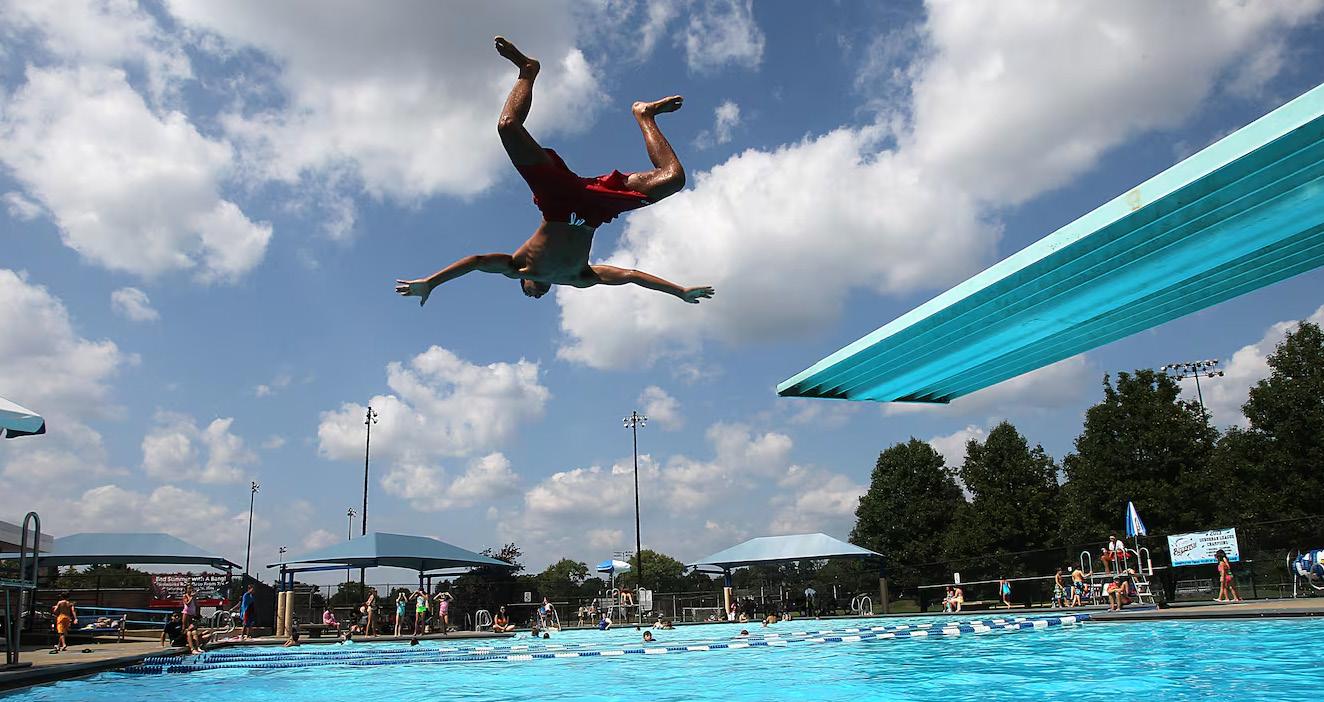
“As someone who's done swim team since I was eight years old, and someone who's taught swim lessons, I think it's so important that kids know how to swim,” she said. “It's good that there's an environment that's more easily accessible to families to teach their kids how to swim, and also for the Newton swim team to use.”
Te Newton Bluefsh, a swim team of kids ages 6 to 18, has practiced and held meets at the Gath Pool for the past 40 years.
Gath Pool Lifeguard and Bluefish swim team member Lila Anapolle said that in addition to teaching life saving skills, taking swim lessons and participating in swim teams encourages children to grow in other aspects of their lives.
“Being on the swim team taught me how to be competitive, but also how to care for other people because our swim coach is all about being nice to the other swimmers,” she said. “I also think it taught me how to get along with other kids.”
Anapolle said that the establishment provides structure and job opportunities for high school and college students who want to work in the summer.
“I really like having a job in the summer
because it keeps me in the school routine. I'm not just sleeping in until noon and then waking up and sitting on my phone all day,” she said. “I get to socialize with kids and parents. It's a good experience.”
Gath Pool Lifeguard and Bluefsh swim team member Jillian Shneider said that the pool is a Newton staple and a popular spot to connect with other residents.
“You see people year after year who come to the pool just to hang out. It's a place everyone goes in the summer,” she said. “It's also a pretty big deal for the Bluefsh, because we practiced here for the past 40 years, and we have all of our meets there.”
Ultimately, Streich said that this project will provide favorable outcomes for Newton in the future.
“It really helps Newton make money, but it also opens up a lot of opportunities. A lot of kids will look back on this and think about the great time they had over the summer,” he said. “It’s making Newton residents more happy and satisfed with the city they live in.”
ing that police are making an efort to be on sidewalks and seeing them walking around makes me feel protected.”
Tis summer, the Newton Police Department (NPD) organized Operation Safe Sidewalks, an initiative to increase police patrols in Newton.
Earlier last year, the NPD received a micro-grant from the Department of Justice, which allocated nearly $28,000 toward Opera tion Safe Sidewalks.
Te initiative addressed feedback from community meetings, including the Tak ing Action workshops last March. Te NPD recognized demands for a greater police pres ence, especially in areas with a large number of hate incidents.
Lieutenant Amanda Henrickson, com mander of the NPD Community Services Bu reau, said that visible police presence promotes a safe and comfortable environment.
“Our goal for this initiative is that it will help alleviate the levels of fear that people have felt over the past year,” she said. “It will be a visible deterrent to crime and also an oppor tunity to promote positive police-community relations.”
Junior Ronen Heimlich, who lives within a patrolled area, said that a stronger police presence in neighborhoods fosters a sense of security.
“As someone who has younger siblings, it's always good to know that there are more people who are able to look out for them,” he said.
A frequent runner in Newton, junior Emily Frawley said that having police ofcers on street patrols protects pedestrians.
“When I’m running, ofcers help guide trafc and watch the roads,” she said. “Know
Ofcers patrol on foot or bicycle around village squares, neighborhoods and parks.
Henrickson said that Operation Safe Sidewalks allows the NPD to
“Each time an ofcer goes on a foot patrol, they then come back and let us know what they observed, and if there was anything that they received back,” she said.
In addition, Community Services Bureau
Sergeant Joe Brooks said that strong policecommunity relations are critical for successful
Brooks said that walking patrols make ofcers more approachable.
“Most people’s only interactions with the police come from trafc stops or calls for service, and this allows the community to get to know us on a personal level as opposed to just a law enforcement role,” he said.
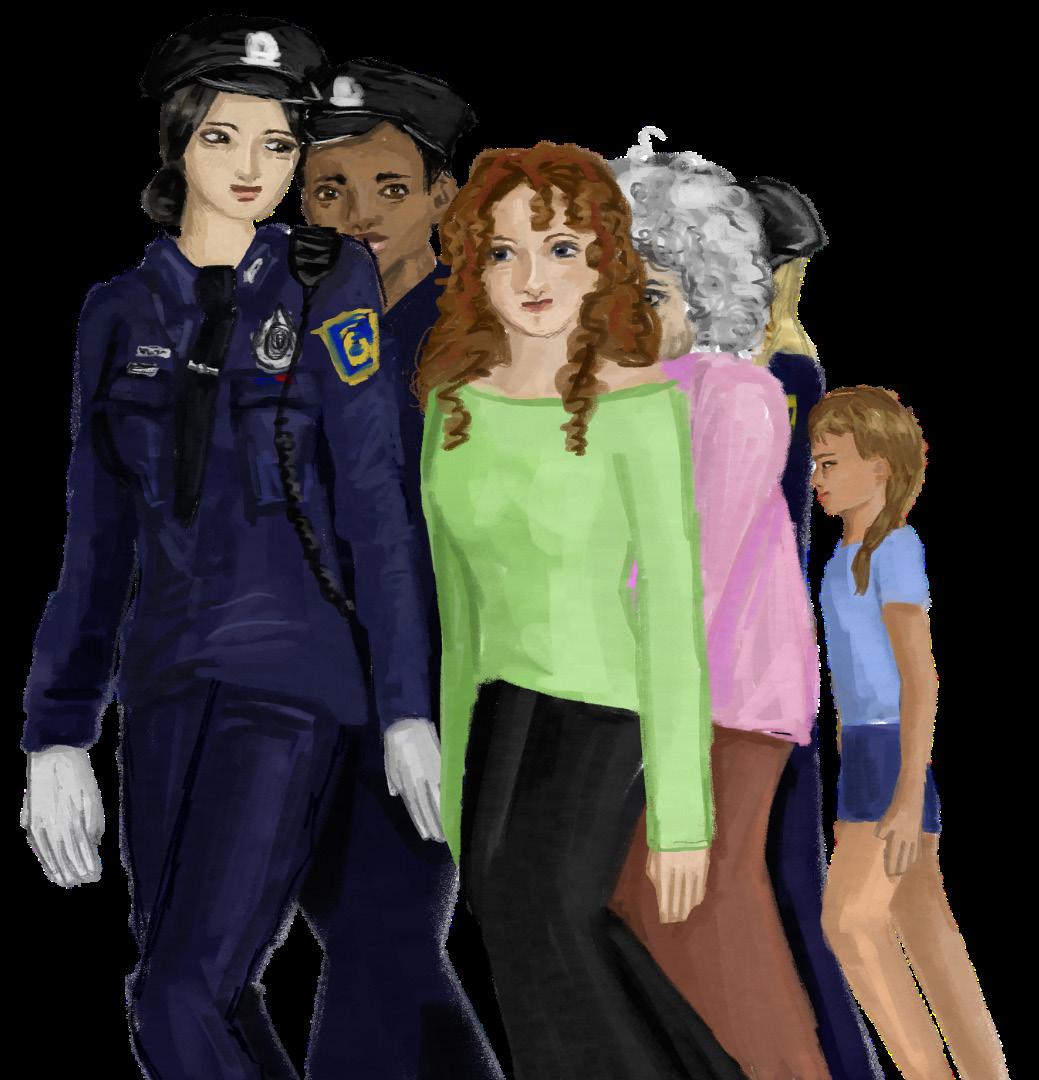
Newton resident and education administrator at Bentley University Christine Lookner, compared NPD’s initiative to one led by the Bentley campus police. She said that when patrols increased on campus, students developed trust for the police.
“Students began to see [cops] as allies and supporters,” she said.“I imagine that something similar would happen in Newton if the police ofcers can build a relationship with the local community.”
NPD Community Outreach Ofcer Justin Lau participated in the initiative twice, and said that engaging with civilians in everyday conversations was eye-opening.
“I have learned everybody has their own story,” he said.“We all go through problems one day at a time, and we just try to be human.”
Henrickson said that if the initiative continues, it will continue to strengthen community relationships.
“It's hopefully something that we can improve upon, build upon and then bring back in the future,” she said.
Ultimately, Henrickson said that the operation benefted the community and offcers alike, spreading passion throughout their department.
“It's reinvigorating the spirit of why many of us became police ofcers, [because] we want to be out in the community,” she said. “We want to help people.”
On Sept. 3, Newton voters will choose which candidate they nominate for the 11th and12th Middlesex District seat
By Sanjana Tewari
The state primary election will take place on Sept. 3, with candidates
Amy Sangiolo, Alexander Jablon and Vladislav Yanovsky running for the Middlesex 11th District seat, and candidates Bill Humphrey, Rick Lipof and Greg Schwartz running for the Middlesex 12th District seat.
Sangiolo previously served 20 years on Newton City Council before leaving to run for mayor twice. Currently, she is a consumer advocate at the attorney general’s ofce.
One of Sangiolo’s priorities is to involve the youth in her campaign. Sangiolo said she encourages students to be politically active and hopes to create more opportunities for them to learn about the industry.
“I want to have regular meetings with diferent youth groups throughout the state, so they can keep me up to date on what the latest issues are,” she said.
Sangiolo’s campaign manager Natalie Moran said that Sangiolo is the right candidate for the job because of her years of involvement in Newton’s community.
“[Sangiolo] has been in politics forever. She knows Newton. She knows us,” she said. “She's not just going to get up there and say, ‘I think this’, she's going to back it up with years of actually making the decisions, making the calls and passing notable change.”
In addition to Sangiolo’sexperience in the industry, Moran said that Sangiolo actively promotes transparency within the government.
“[Sangiolo], as a candidate, really exemplifes transparency,” she said. “She spent years writing newsletters making sure that people knew what the local government was doing, even when she wasn't involved in Newton’s local government.”
Jablon attended Indiana University majoring in fnance; in that time, he managed large budgets and gained experience in auditing before being recruited to work at RTX, a private defense company.
He said that his unique background makes him more qualifed to take on the role of state representative.
“We have so many lawyers in the House of Representatives right now we don't need another one,” he said. “We don't have audit experience in the legislature and it is desperately needed.”
Jablon also said it’s important that the legislature constantly moves toward achieving its goals.
“Some of the issues we've had in the
past is that we've been looking for the perfect solution, and in the meantime, we haven’t been making progress,” he said. “I'd want to start somewhere and work. Some of the programs might not work, but that's why you have continuous improvement, and you keep assessing your work.”
the Massachusetts Sierra Club.
Humphrey said when it comes to collaborating with others on his campaign, he values a wide range of perspectives.
“We have an incredibly diverse team volunteering for my campaign, including people from every possible background,” he said. “I'm running the most inclusive campaign that is about making sure everyone is heard, represented and feels safe and included in their community.”
Humphrey said that his main focus is to ensure that progress is being made toward the issues that concern the community most and that his progressive agenda makes him stand out as a candidate.
Humphrey said that the legislature


Lipof has lived in Newton for most of his life and has served as the chair of the Land Use Committee on the City Council for 22 years. Lipof has also founded and run a real estate appraisal and consulting company for 33 years.
Lipof said that one of his major priorities is fnding a way to increase housing and support for immigrants.
“Te infux of immigrants is a problem that we need to deal with, and we need to deal with it in a compassionate way,” he said. “Te shelter system is stressed to the limit, and as people come out of the shelter system we need programs to support them.”
Humphrey has a background in political communications and media work. In addition, he was the former political chair of
should keep the climate crisis in consideration when tackling other issues within the community.
“If we approach the climate crisis in the right way, with a green New Deal that involves the labor movement and tries to address some of these other issues, we can fx a lot of other problems at the same time,” he said. “If you need to build thousands of new homes in Massachusetts over the next several years, you want to be doing that in concert with the labor movement and doing it in a green and sustainable way.”
“I think that if we want a state that people want to stay in and have businesses in and so forth, we need to be addressing the challenges that economically are afecting so many people, and that is going to mean big programs and big investments in our population,” he said.
While in college, Schwartz was heavily involved in politics, participating in the 1988 Dukakis campaign and working for congressmen and a member of Parliament. Schwartz’ combined passion for policy and career in medicine infuenced his work in politics, such as his campaign for universal healthcare in Massachusetts. With over 20 years of medical practice at Massachusetts General Hospital and Brigham and Women's Hospital, he also served as a City Councilor for 8 years, addressing key local issues.
Schwartz said that his experience as a doctor is important because he sees issues within the healthcare system frsthand.
“I want to improve our healthcare workforce to try to increase the programs that help train people to be nurses, aides, and home healthcare workers,” he said. “We can put more money into MassHealth, which is our Medicaid program, to pay for the things that are valuable and achieve savings like primary care and expanding psychiatric care, which is greatly needed.”
Schwartz said that listening to the community’s opinions and needs is essential to the role of a state representative.
“You just have to listen to people. My whole job is listening to people every day. I listen to patients day in, day out,” he said. “Tere's diverse opinions, no issue can any of us claim to know everything about, so we really have to learn and be ready to adjust what we think we know when we hear new information.”
Schwartz said it is important for young people to stay engaged in politics and hopes that by doing so it will encourage them to inspire change within their communities and governments.
“Te more we can inspire young people, the more they can see that these people who are running our society are just like they are, and they can get involved just as well, and maybe they can do a better job,” he said. “To be encouraged and then realize that it's not out of our hands is really important.”
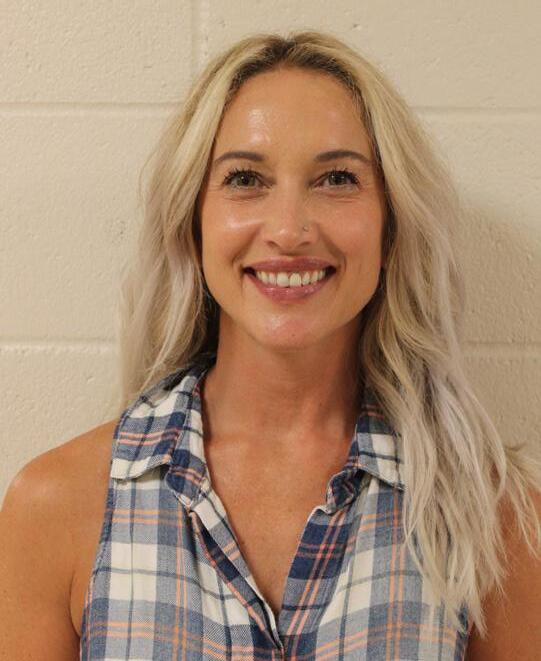
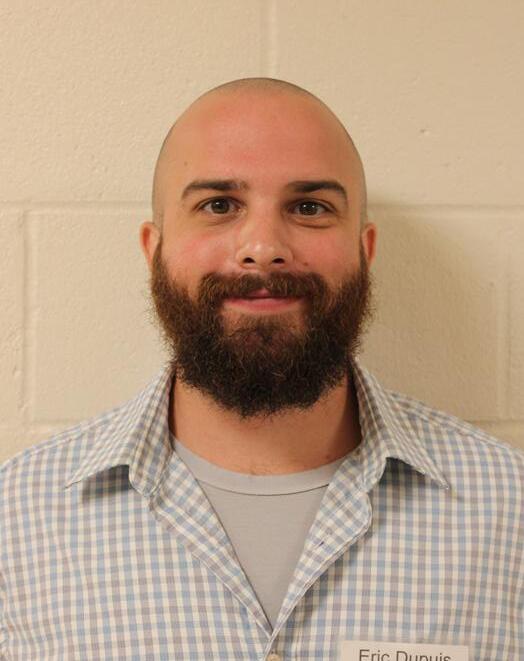

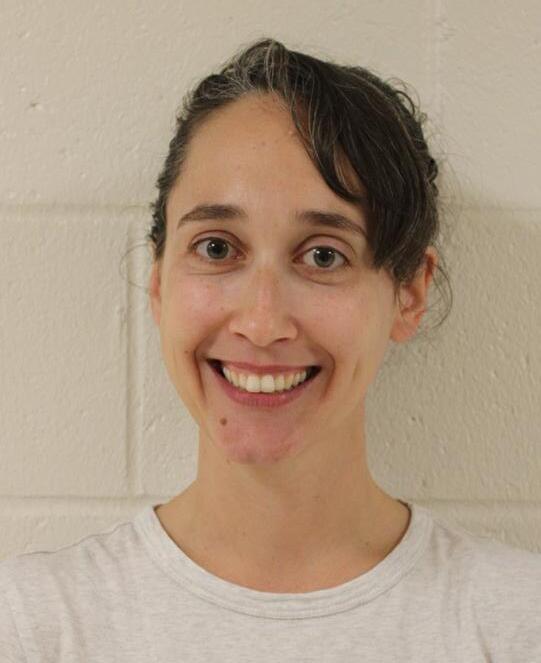
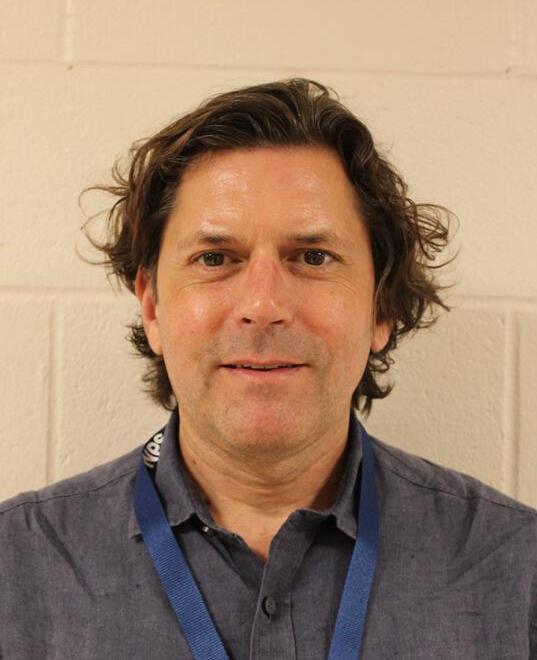

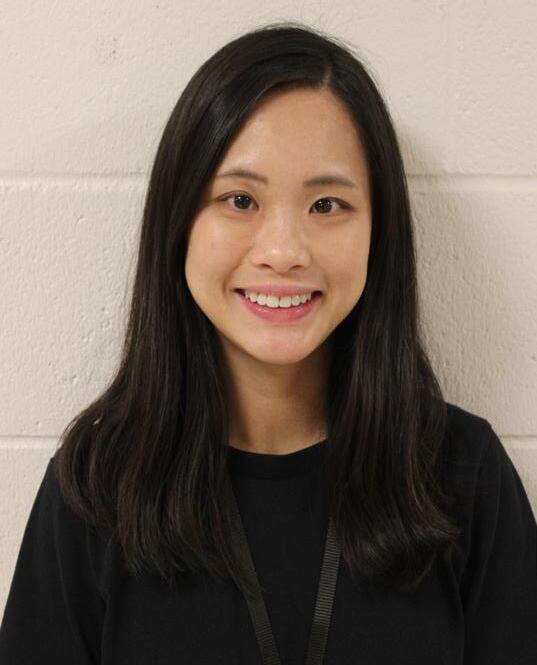
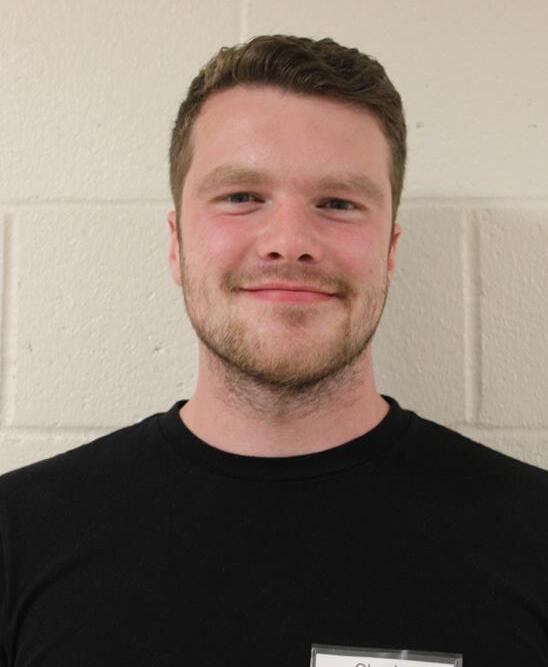


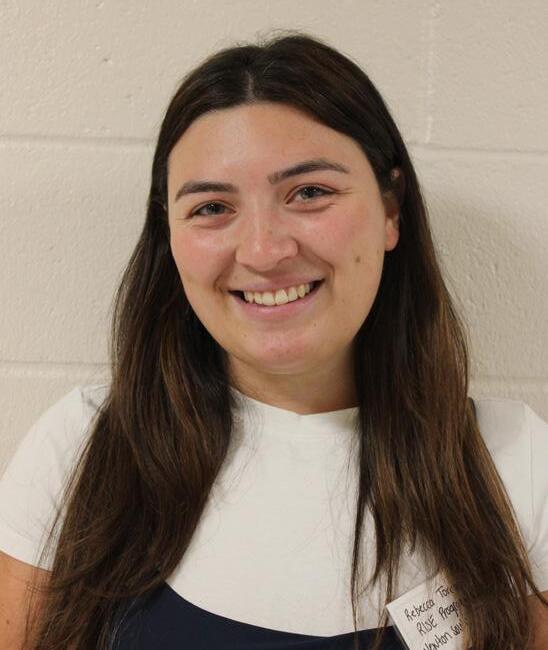



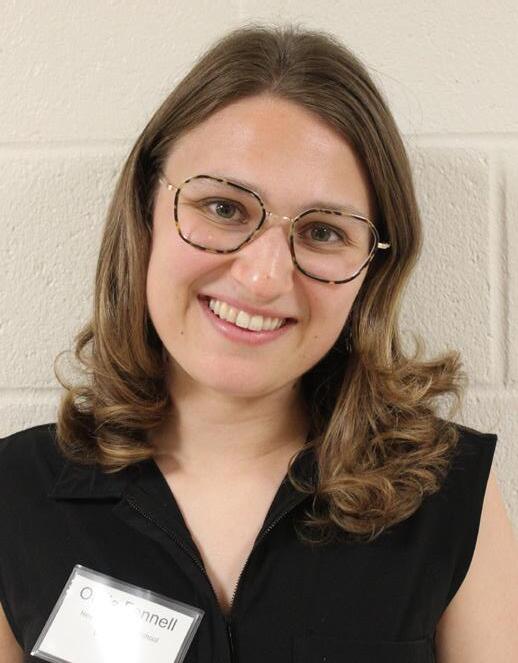

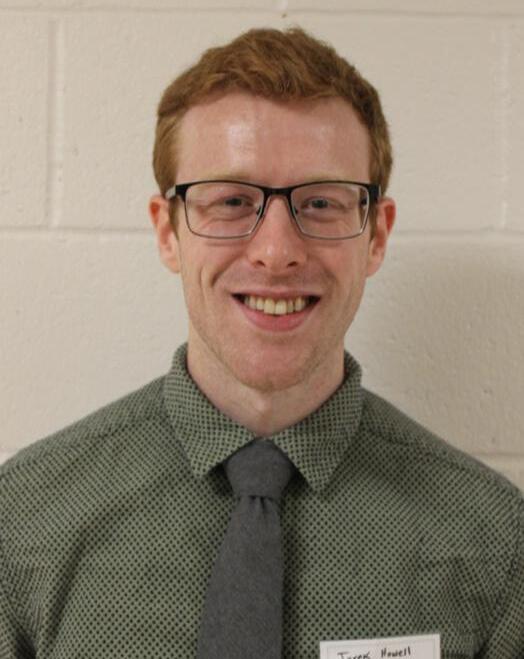
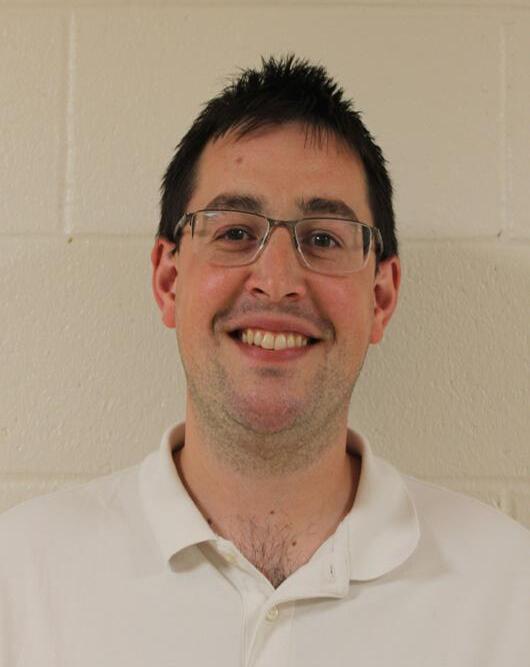
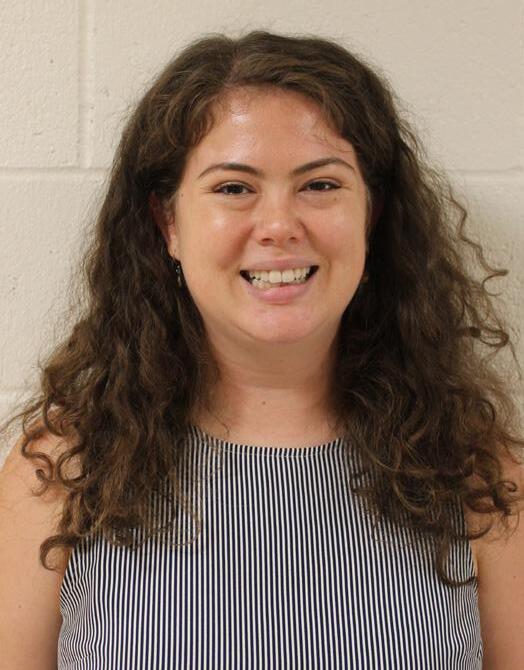
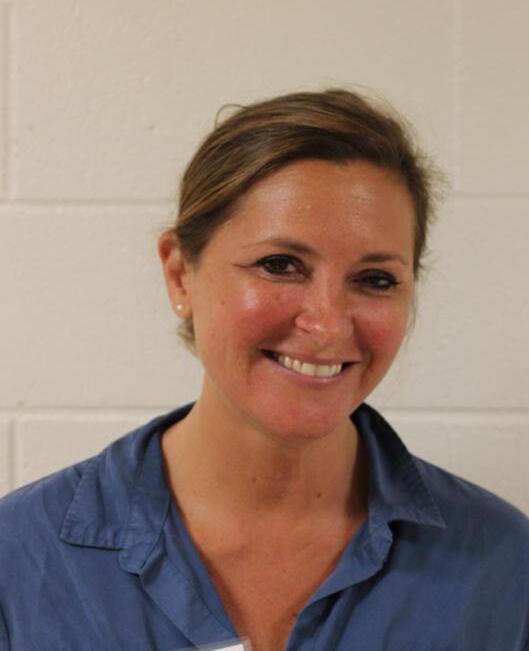
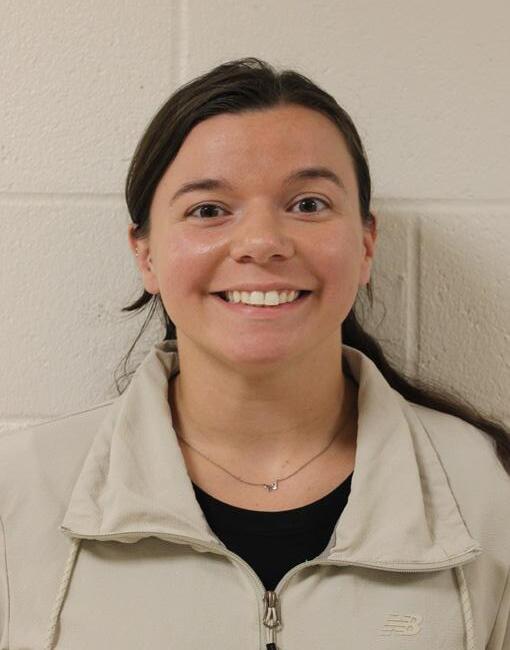
Vice President Kamala Harris’ surprising transformation into a“brat” icon is taking social media by storm, blending politics, pop culture and the iconic shade of “brat green”.
Te unexpected trend fnds its roots in pop star Charli XCX’s most recent album Brat, a celebration of messy and unapologetic femininity.
After the singer boldly tweeted “Kamala IS brat” following President Biden’s unprecedented decision to step out of the presidential race, Harris became the face of this cultural moment.
Te trend is a rebellious counterpoint to the polished “clean girl” aesthetic, swapping out a slick ponytail and beige accessories for a pack of cigs and mini skirts.
For many young people, especially women, the brat persona’s embrace of freedom and rebellion is a refreshing shift.
Harris’ social media team has leaned into this carefree attitude, reposting cheeky memes and letting a few curse words fy in a bid to connect with younger voters.
Te notion of a “brat summer” raises interesting questions about how pop culture and politics collide—and what this brat-itude says about shifting views on leadership and femininity.
Social media plays a massive role in amplifying this trend, for better or worse. Te
inside jokes, niche references and layered memes of the brat movement create a culture that feels exclusive and cliquey, leaving those who don’t understand apples rotten right to the core, on the outside.
In a political landscape that often leaves younger generations feeling disconnected and unrepresented, the brat rebrand gives Harris a unique edge.
By embracing a relatable persona, she positions herself as the lesser of two evils in the eyes of many young voters.
While this strategy brings a fresh perspective, it also risks trivializing serious political issues if the focus remains on aesthetics rather than substance.
For some, the association with partying raises concerns about professionalism. Tere’s a fne line between being playful and being taken seriously, especially for a political leader.
Although the rebrand may appeal to younger voters, it risks alienating the older population – voters who expect more traditional displays of leadership.
Te conversation around professionalism is deeply gendered, especially in politics. Women leaders are scrutinized more harshly than men, with every aspect of their appearance and behavior under a microscope.
While Kamala Harris and Hillary Clinton are referred to as “Kamala” and “Hillary”,

Te Lion’s Roar, founded in 1984, is the student newspaper of Newton South High School, acting as a public forum for student views and attitudes.
Te Lion’s Roar’s right to freedom of expression is protected by the Massachusetts Student Free Expression Law (Mass. Gen. Laws Ann. ch. 71, Section 82). All content decisions are made by student editors, and the content of Te Lion’s Roar in no way refects the ofcial policy of Newton South, its faculty, or its administration.
Editorials are the ofcial opinion of Te Lion’s Roar, while opinions and letters are the personal viewpoints of the writers and do not necessarily refect the opinion of Te Lion’s Roar. Te Lion’s Roar reserves the right to edit all submitted content, to reject advertising copy for resubmission of new copy that is deemed acceptable by student editors, and to make decisions regarding the submission of letters to the editors, which are welcomed.
Te Lion’s Roar is printed by Seacoast Newspapers and published every four weeks by Newton South students. All funding comes from advertisers and subscriptions.
In-school distribution of Te Lion’s Roar is free, but each copy of the paper shall cost one dollar for each copy more than ten (10) that is taken by any individual or by many individuals on behalf of a single individual. Violation of this policy shall constitute theft.
their male counterparts are typically addressed by their last name, refecting a subtle bias that can undermine the respect aforded to women in politics.
Te brat rebrand displays Harris’ ability to be authentic and connect with young voters, however, could quickly be seen as reinforcing negative bad behavior, overshadowing her policies and values.
Harris’ rebranding taps into a broader trend where politicians are increasingly intersecting with pop culture to create new forms of engagement.
Tis tactic of borrowing from music, fashion, and celebrity culture speaks to a world where political campaigns are no longer just about policy positions but also about image and relatability.
Music and politics have long been intertwined, from Fleetwood Mac’s “Don’t Stop” defning Bill Clinton’s 1992 presidential campaign to Beyoncé’s“Freedom” underscoring Harris’ 2024 campaign.
However, the irony of British pop star Charli XCX infuencing an American election isn’t lost on critics who question the depth of her endorsement.
While blending pop culture with politics can connect candidates with new demographics of voters, it also raises concerns about the depth and authenticity of such connections,
especially when they hinge on feeting trends or celebrity infuence.
However, Harris' brat rebrand is more than just a viral trend: rather, it’s a cultural moment that challenges how we view femininity, leadership and how young people engage with politics.
By embracing the brat persona, Harris sends a powerful message: women don’t have to conform to outdated expectations to be taken seriously in leadership roles.
Te term “brat” itself, often used to demean and dismiss, is now being reclaimed to signify unapologetic confdence, resilience and a refusal to be boxed in.
Tis reclamation represents a broader shift toward celebrating individuality and pushing back against the rigid, narrow standards that have historically limited women. For students, especially young women, the brat movement serves as a reminder that we all have the power to redefne what leadership looks like.
Te brat aesthetic encourages us to celebrate the full spectrum of womanhood— whether that’s polished or messy, traditional or rebellious.
By rejecting the idea that we must be “perfect” to lead, we open up space for more diverse and honest representations of women in positions of power.
Newton South High School’s Student Newspaper
140 Brandeis Road, Newton, MA 02459
ss.lionsroar@gmail.com
Editors-in-Chief
Grace Dempsey
Andrew Feinberg
News
Hana Futai
Jenny Lee
Ellie Shim
Risha Sinha
Managing Editors
Julia Lee
Teo Younkin
Section Editors
Alex Zakuta Centerfold
Irene González de las Casas
Ava Ransbotham
Features
Laura Feng
Sarah Schwartz
Bethesda Yeh
Photo Managers
Tayer Bialek
Tate Slater
Opinions
Max Hubbard
Jacob Lewis
Angela Tao
Grace Yang
Sports
Charlie Bluestein
Joey Giragos
Olivia Whitaker
Graphics Managers
Clare Cho
Lynn Kim
AJ Nguyen
Faculty Advisor
Ashley Chapman
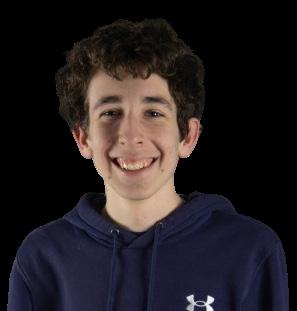
Andrew Feinberg Managing Editor
Te world looks diferent to me.
Te tall trees hovering over my house, the squirrels sprinting across my front lawn and the basketballs that lay in my driveway beaming in the sun are all similar shades of brown, while the sky looming over my head and the bright lake in the distance appear a uniform shade of purple.
While it may seem as though I am looking through a distorted pair of glasses, I am just describing what I see when I look out the window.
During my elementary school years, I often wondered why I would receive confused looks when somebody asked me to hand them the yellow marker or the green construction paper.
“Don’t you know what yellow is?” another student asked.
Others were too polite to correct me, or perhaps the color didn’t matter enough to them.
By the ffth grade, I noticed my perception of colors didn’t align with the way the rest of the world saw them, but I was too embarrassed at the thought of sharing this diference, so I kept it a secret.
Little did I know that an assignment in my eighth-grade social studies class would force me to fnally speak up.
In preparation for a geography test,
I was supposed to make a color-coded map, where each of the original thirteen colonies in the United States was assigned a specifc color.
How would I be able to draw in the proper color for New Jersey when what I saw as green was diferent from the rest of the class? For the frst time, I realized I had to tell someone.
I spoke with my teacher and she helped me fnd a way to complete the assignment without needing to recognize colors in the same way as the rest of my class.
While I still didn’t understand why I
the eye doctor fipped each page, I waited to see a number or shape, but I saw none.
I apparently had one of the more severe forms of color blindness as on each passing page people with milder cases saw at least some of the shapes and numbers.
Did this test change anything for me? In many ways, no, since I have never seen the colors I can’t see so I don’t know what I have been missing.
However, it did change knowing that I had “something” that had a name and all
We may all have diferent learning needs and styles, but there are many ways to accommodate our diferences, and celebrate our unique perspectives even when they’re only in diferent shades.
didn’t see colors the same as my classmates, this was the frst time I realized there were obstacles in school that I had been dealing with alone and how important it was to speak up.
I also realized I needed to be more open about it with my parents, which led me to fnally at the age of 15 take a color blindness test.
I was asked to look at circles where colored dots were organized and say what numbers or shapes I saw in their patterns. As

Most people with color blindness have trouble diferentiating between colors; most commonly, green looks red and red looks green. In some forms, it is hard to distinguish between blue and purple.
Although I apparently can never become a pilot or frefghter, and in a number of countries— fortunately not the United States— I can’t get a driver’s license, being colorblind does not have to defne the way I interact with the world.
Whether it is choosing what clothes to wear, interpreting color-coded charts or not causing an explosion in a chemistry lab by mixing the wrong colored liquids, I have discovered the importance of asking for help and developing alternate strategies for learning and problem solving.
Te response from my eighth-grade teacher inspired and instilled in me the confdence to speak up for myself.
those times I felt embarrassed now had an explanation.
I have since learned that color blindness is quite common, with 300 million people worldwide being afected and is especially prevalent in males, with one in 12 having some form of it and one in 200 females being afected.
Many think that people with color blindness only see black and white or don’t see any color at all; however, that is very rare.
She demonstrated how addressing my challenges was not as daunting as it seemed, which paved the way for me to feel comfortable with seeking help in other contexts.
While color blindness may be one of the more mild examples of a learning diference, the lessons I have learned apply to many of the diferences among us.
We may all have different learning needs and styles, but there are many ways to accommodate our diferences, and celebrate our unique perspectives even when they’re only in diferent shades.
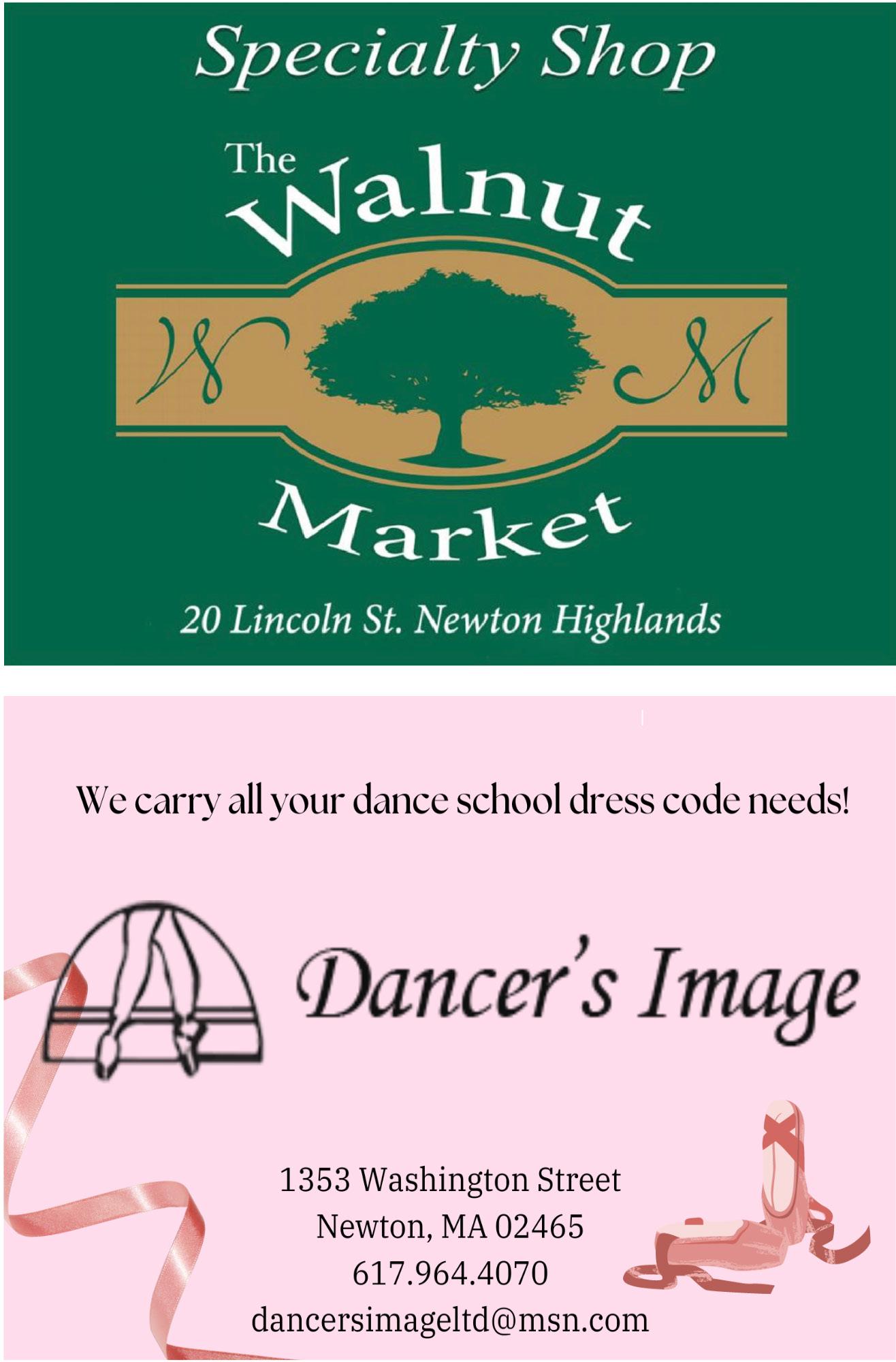





By Kiril Zhdanov
Are you a lost soul entering high school for the frst time? Have you aimlessly wandered the halls thus far, terribly confused about the complexities of high school life?
If you answered “yes” to either question in this fgurative survey, look no further, for I am here to provide you with the one-stop guide to surviving South.
As you prepare to set of for your fouryear ride here, let this article make it easier for you to jump over the brutalist architectural, academic and social hurdle that is our lovely high school.
When thinking about your student life at South, you may conjure up images of a large cafeteria where classically trained chefs serve you Michelin star meals — which you technically will fnd in this building — only it will be our Student Center and not a top restaurant.
Unfortunately, at times, during lunch, it gets so crowded that it is nearly impossible to fnd a seat while carrying your cardboard lunch tray’s questionable-looking meal (and God forbid you sit in the hallways when such overcrowding ensues because that, of course, is a fre hazard).
Under these unlucky circumstances, your party of four may become a party of fve when a rat gracefully scurries past with the dexterity of a trained Olympic athlete. Tus, even as the zealous lion ofcially represents our school, I’d contend that the rat best embodies the student population.
You could even apply this common pest ideology in your daily hunt for a seat: next time you see an empty chair in the cafeteria, run to it. (And if anyone tries to stop you, simply infect them with a highly infectious strain of rabies, sinking your teeth into their hand as the
microplastics found in your school lunch nachos start turning their skin a deep shade of green).
But the overcrowded Student Center is not South’s only great space: the library is one of the best locations in the school to get work done. It is not only a hub of student activity, but also home to great facilities like the quiet study areas, recording rooms and — unlike elsewhere — actually enough seats.
But when in the library, I urge you to follow the rules. Do not even try to seat more than four people at a table. If you do, the table will display 404 messages before dropping oxygen masks (help yourself before helping those around you; after a short duration oxygen will begin fowing). If the above does not occur, a librarian will surely materialize instead to inform you of your misdeed.
So now that you know all about our school’s community spaces, let me teach you about the students who fll them — specifcally those who curate clubs, organize school events and even (*gasp*) fall in love.
Te club scene at South is completely incomparable to the dry desert that was the club selection in middle school. One can fnd intellectually invigorating clubs such as
Even as the zealous lion ofcially represents our school, I’d contend that the rat best embodies the student population.

debate, where you passionately argue about complex topics such as whether wafes or pancakes are better.
However, if repackaged passive aggression is not quite your thing, consider something more chill like Cheese Club where you… roll wheels of Parmesan down the hallway? Your guess is as good as mine.
Whether you end up picking one or the other or something in between, when it comes to choosing a club, there is only one piece of advice I can give you: embody the rat and crash the ones with food (*wink wink* the Lion’s Roar).

Although, if you seek a connection that isn’t as one-sided as club food scavenging, you might fnd what you are looking for in a romantic relationship.
In movies, we see love birds making out in the halls, but in the normal high school experience, dating is more on the back burner.
With classes, never ending homework and all kinds of clubs, it’s hard to fnd time to balance it all — let alone fnd your soulmate. Remember that being overwhelmed at times is normal, and that you don’t have to try everything.
Speaking of being overwhelmed, no high school experience is complete without the stress of student elections. Tere is nothing quite like making Canva posters and vaguely funny, yet nonetheless hype Instagram Reels, all in an attempt to convince your classmates to vote for you.
Even if these traditional methods of campaigning do not work, do not worry: our class ofce and senate elections do not require you to embezzle government funds or argue
national audience. Just try your best, give it your all and try to forget it is a popularity contest.
Finally, we must discuss what truly makes high school special — the sacred promposal: when the person of your dreams publicly announces they have chosen to go prom with you (romantic music and doves not included), and you say yes.
You might even be featured on South’s promposal Instagram page or PDA page, depending on who took the photo.
No pressure to have the night of your life at this dance. Have fun the way you’d like.
Now that you, clutching this leatherbound volume, know it all, I welcome you to the bowels of high school. Even if you lose this one-of-a-kind, irreplaceable, absolutely perfect article, I urge you to remember all high school experiences are special.
Just because you do not “check of all the boxes” of the movie-perfect high school experience does not make your experience any lesser than anyone else’s.
Now scurry along, young rat, and enjoy high school to its fullest degree.

By Anya Kopinja & Joya Tendulkar
Tere’s a stereotype regarding American tourists: loud, rude and annoying.
Everyone hates tourists when they come to visit their hometown but seems to forget that feeling when they travel elsewhere.
As families on summer vacation trickle into foreign locations, so do locals’ pleas for tourists to go home.
Whether it take the form of side-eyes on the sidewalk, a higher price for a souvenir or even water gun attacks — like in Barcelona this summer — many locals are desperate to stop the infux of troublemaking travelers.
However, tourists play a vital role in an area’s economic well-being. In Maui, four of every fve dollars generated are spent by visitors.
Because of the economic stimulation tourists provide, local governments skew investments into the upkeep and revitalization of infrastructure in touristy areas.
But all these benefts come at a literal cost: the more touristy an area is, the higher prices become. Housing prices increase, Ubers are 10 times more expensive, and lattes reach a record high of seven dollars.
Currently, tourists don’t have enough respect for the locals of where they are visiting. People often visit a destination for its tourist attractions without researching local customs beforehand. Tey consequently don’t know how to act appropriately according to local traditions.
Additionally, tourists frequently visit a country with little knowledge of the local language. Tey assume locals may just start
speaking in English. Tis assumption naturally upsets residents, as foreigners completely separate from their lives are now forcing their own customs upon them.
On the other side of this problem, locals lack empathy for tourists. Te former’s apathy manifests as violence against the latter, making them fear for their safety: a timely, though relatively innocuous, example being Barcelona natives spraying incoming tourists with water guns in protest.
Locals do this in the hopes that tourists leave early or never return. Tis usage of violence is unacceptable, especially considering the root of the problem isn’t the tourists themselves, but rather the norms of prioritizing proft over safety and respect the tourism industry has set.
Tourists should not normalize visiting a place without knowing anything about the people there; locals should not assume all tourists are harmful or ill-intentioned.
Te issue is that , in spite of evidence to


the contrary, tourists nonetheless expect they will be accommodated because so far, the industry has — often at the cost of locals’ comfort. We can fx this problem by stepping back, being human and attacking the current norms for tourism.
Tourists need to research places before deciding to vacation. Te internet is a marvelous tool individuals should utilize to learn an area’s diferent customs, traditions and phrases for communication in its local language.
It is the tourist’s responsibility to know if there are traditions or customs they should be aware of before visiting.
I recently visited family in Warsaw, Poland, near the PGE Narodowy Stadium where Taylor Swift was performing. Her Aug. 1 show coincided with the 80th anniversary of the Warsaw Uprising, a revolt against Nazi forces during World War II.
To commemorate the revolt’s anniversary, the City of Warsaw organized a minute of silence at 5:00 p.m.
Tousands of concertgoers respectfully paused, having researched and been informed about the event beforehand.
Tis moment serves as an example of how industry can have their cake and eat it too; how tourists can enjoy themselves at a concert while respecting the locals, and the local economy can beneft from the stimulation tourism provides.
It is entirely possible for tourists to follow local customs and traditions — and equally possible for locals to respect tourists.
By Sofia Telio
After an arduous year of studying, late nights preparing for tests and stressing about the future, summer is supposed to be our release. It’s supposed to be time to relax, turn of our brains and, for once, not worry about our academic future.
However, considering I am writing this article while on break at a summer camp, where I earn $11 an hour to be yelled at by fve-year-olds for 10 hours straight, surrounded by an open APUSH text book and scattered papers from my last SAT review, it’s clear that sum mer is no longer about fun.
There is no rest for the weary, and this pressure to use downtime productively is only growing. In fact, according to a PEW Research Center study, students in the summer of 2023 spent at least four more hours per week doing school work than kids in the summer of 2014.
relentless social pressure to remain competitive in the college race persists, evident through students’ pursuits of internships, summer courses and intensive test preparation.
Tis expectation to use the summer “productively” signifcantly diminishes the opportunity for genuine relaxation and is frankly upsetting.
many students still fnd the burden isn’t easily manageable. Compounded with all the rigorous self-studying, our lax summer days have disappeared.
For rising juniors like myself, the summer months are also the prime time for standardized test preparation. Since the academic year is already jam-packed, the comparatively free ers a crucial window to prepare for the SAT or ACT. Yet, once again, as we utilize this critical study period for practice tests and review sessions we sacrifce our time for relaxation.

graphic by Ellen Wu
Te conventional image of summer as a time for leisure is rapidly becoming obsolete. For many students, summer has transformed into an extension of the academic year. Te
a preparatory period for students like me enrolled in multiple AP courses. Te summer work we do often includes lengthy textbook readings, completing detailed written assignments and mastering complex concepts without aid or support. Te aim is to alleviate the school year’s intense workload; however,
Underlying this relentless pursuit of productivity is a deep-seated fear of falling behind. In an increasingly competitive academic environment and job market, students feel immense pressure to distinguish themselves.
Te fear that taking a genuine break will put them at a disadvantage, compared to their peers, drives many students to continue working through the summer.
Tis anxiety, compounded by societal expectations and the messaging that success directly correlates with constant efort and productivity, drives students to burn out. Ten there are the extracurriculars. As a dedicated member of the debate team, for me, the summer is no break. Even though I
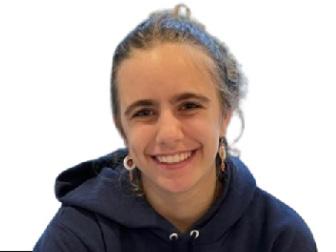
might not have to compete during the summer months, the preparation for the next debate never stops.
My partner and I have held countless drills, mock debates and late-night FaceTime calls to ready ourselves for September nationals. I drill until the speeches fow perfectly, draft cases for September and plan lessons to teach the middle schoolers and novices, who will become my responsibility come fall. Tis preparation accumulates to hours upon hours of work, stress and mental pressure.
No wonder burnout rates skyrocketed among high school students from 3.8 percent in 2014 to 11.4 percent in 2022. It is imperative that students get a break and time to relax. However, when summer no longer ofers that much-needed respite, what replaces that rest?
Te unfortunate answer for many students is nothing. Tere is no break period; no de-stress time to turn of the brain and relax.
Tis lack of downtime only leads to burnout, increased stress levels and a general sense of exhaustion, not the hyperproductivity that guarantees success. In the long run, the absence of a true break to recharge and rejuvenate diminishes students’ overall well-being and academic performance because they’re always drained.
To support mental and emotional health, it is essential that students recognize the importance of balance and the need for genuine rest periods. We’re working so hard, sacrifcing our summers to succeed – but what does that matter if we destroy ourselves in the process.
From country crooners to popstar productions, the summer's hottest musicians tried and often failed to reinvent their sound
By Leah Greiner


Bando Stone and the New World” is Donald Glover’s fnal album as Childish Gambino, as well as being the soundtrack of a short flm he is both directing and starring in. Aside from its name — which it shares with the album — and details showcased in the trailer, the flm largely remains a mystery.
It’s possible that after the flm is released the strange combination of genres, ranging from indie pop to contemporary R&B, will feel more cohesive, but without the added context from the movie, the constant shifting between completely diferent styles feels like putting your liked songs on shufe and hoping for the best.
Te upside of the mix of styles is that it allows Glover to showcase his range of skills, with his vocals in the pop songs and his rapping in the R&B tracks. We also see some strong pop-rock (“Dadvocate”) and afrobeat (“In the Night feat. Jorja Smith and Amarae”) infuences, which contrasts with his usual rap and R&B. “No Excuses (feat. Ludwig Göransson)” and“Cruisin’ (feat. Yeat)” are the most obvious pop songs with the former having some soul



and jazz infuence and the latter featuring an orchestra by Swedish composer Goransson, giving it a classical undertone, mixing yet another genre into this hodgepodge of styles.
Glover, who rose to fame as a sitcom actor, writer and stand-up comedian, has always featured internet references and a joking undertone in his tracks.
However, he has previously stated he is trying to pull away from the image of a farcical artist with his fnal album, solidifying his place as a more “serious” artist.
His intention is clear in this album; nonetheless, in some places, the constant changes in styles take away from the cohesion of the album as a whole and come of as unpolished rather than experimental.
Te constant switching of genres — while creative — can give listeners musical whiplash, especially on the frst listen. Te lack of con- sistency makes it difcult to enjoy the album.




While on his last-ever tour, folkcountry star Zach Bryan released his ffth studio album “Te Great American Bar Scene”.
As a whole, the album embodies nostalgia, the profound, heart wrenching lyrics of “Pink Skies” and “28” specifcally making me want to cry about the loss of my youth — and I’m only 15!
Yet, some of the album’s other songs lack such emotional depth.
Tey have one specifc stand-out line, contributing to that“made for TikTok” feel that can also be seen in viral hits “I Like Te Way You Kiss Me” by Artemas and “First Class” by Jack Harlow.
In “Bass Boat”, which discusses growing up under the infuence of family, “I was raised


Gby a woman who was rarely impressed / and I carry that shit real deep in my chest”, is really the only meaningful line, yet it was enough to make the song go viral despite the dull platitudes that make up the rest of the track.
Although some of the pieces may lack lyrical depth, Bryan makes a stylistic shift in a positive direction with this album. He leans into a folk style very similar to Tyler Childers’s music, juxtaposing with the pop country genre popularized by artists like Morgan Wallen and Luke Combs.
Te nostalgic themes and strong vocals, especially in his collaborations, make Bryan’s recent album perfect for road trips and pregraduation mental breakdowns, just don’t expect 63 minutes of pure poetry – because you’ll be disappointed.


racie Abrams, pop singer-songwriter and daughter of director and producer JJ Abrams, rose in popularity after opening for Taylor Swift’s Eras Tour.
Now, this 24-year-old nepo baby is a superstar in her own right, with Swift just a feature on her fourth studio album “Te Secret of Us”.
Te album’s standout tracks are the more upbeat ones: “Close to You,” “Blowing Smoke”and “Tough Love”.
It’s no coincidence these are also the album’s most popular songs, as their catchy lyrics and upbeat rhythm create a sense of joy and hope even as they tackle sad themes of heartbreak.
Abrams’s music clearly takes inspiration from her female contemporaries; some of her songs evoke




Lorde’s fun, buoyant art pop and electropop melodies, while the slower ones feel reminiscent of Phoebe Bridgers’ poetic indie folk sound. Te two sounds are diferent enough from each other that the album as a whole doesn’t feel like a mimicry of either one alone; in fact, their combination paves the way for Abram’s emergent voice as an original artist.
As the initial excitement fades toward the end of the album, the slower songs begin blending together into one monotonous droll that managed to bore me even in the album’s short 50 minutes.
When Abrams’ tries for a slower ballad, her surface-level lyrics and airy vocals are not profound enough to carry the weight of the style. As a lover of sad music, Abrams’ lyrics have always disappointed me, and this album was no diferent.
Te stand out tracks in the frst half (mentioned earlier) make for an entertaining listen, but the rest of the songs could and should be skipped.


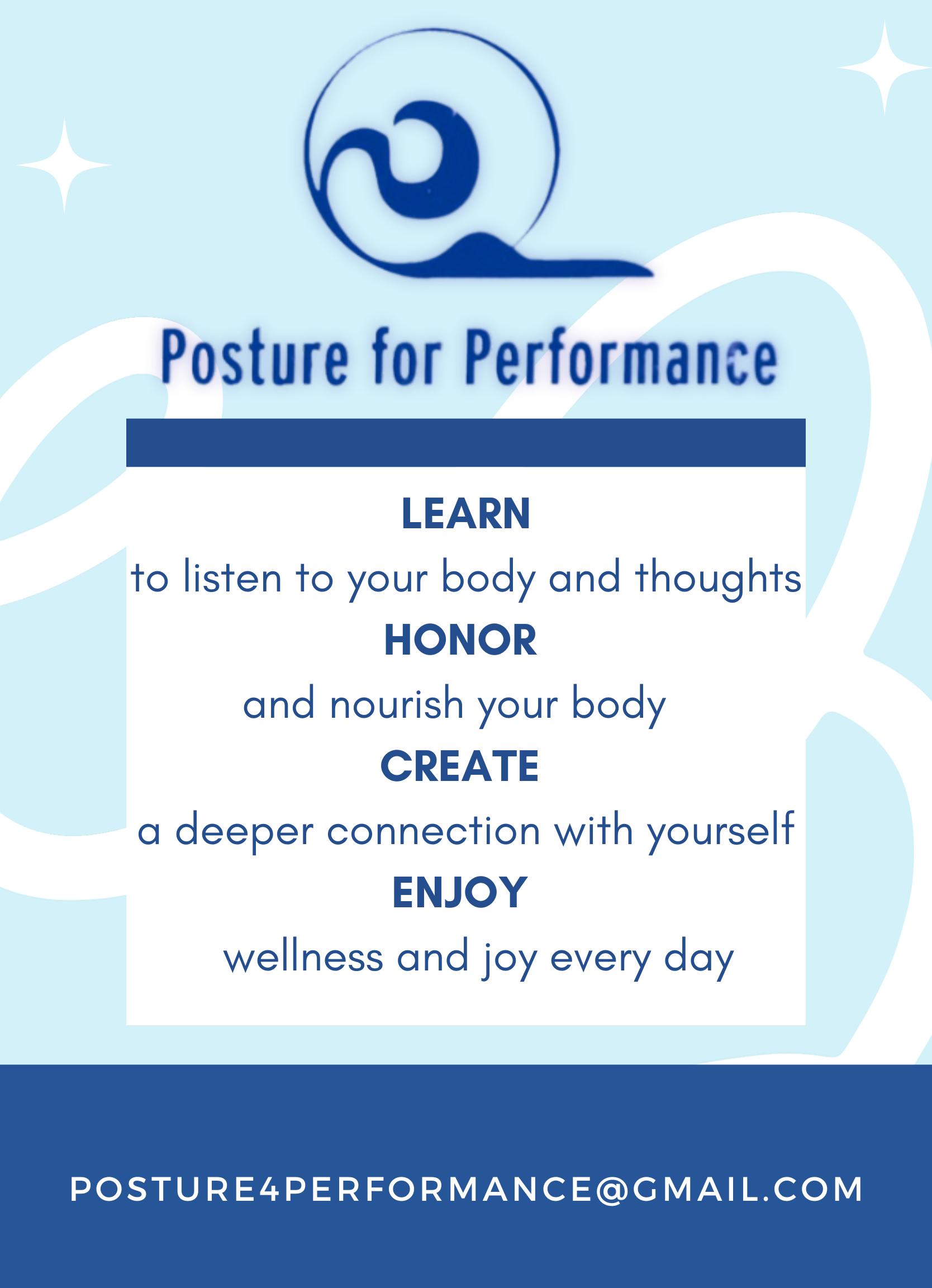
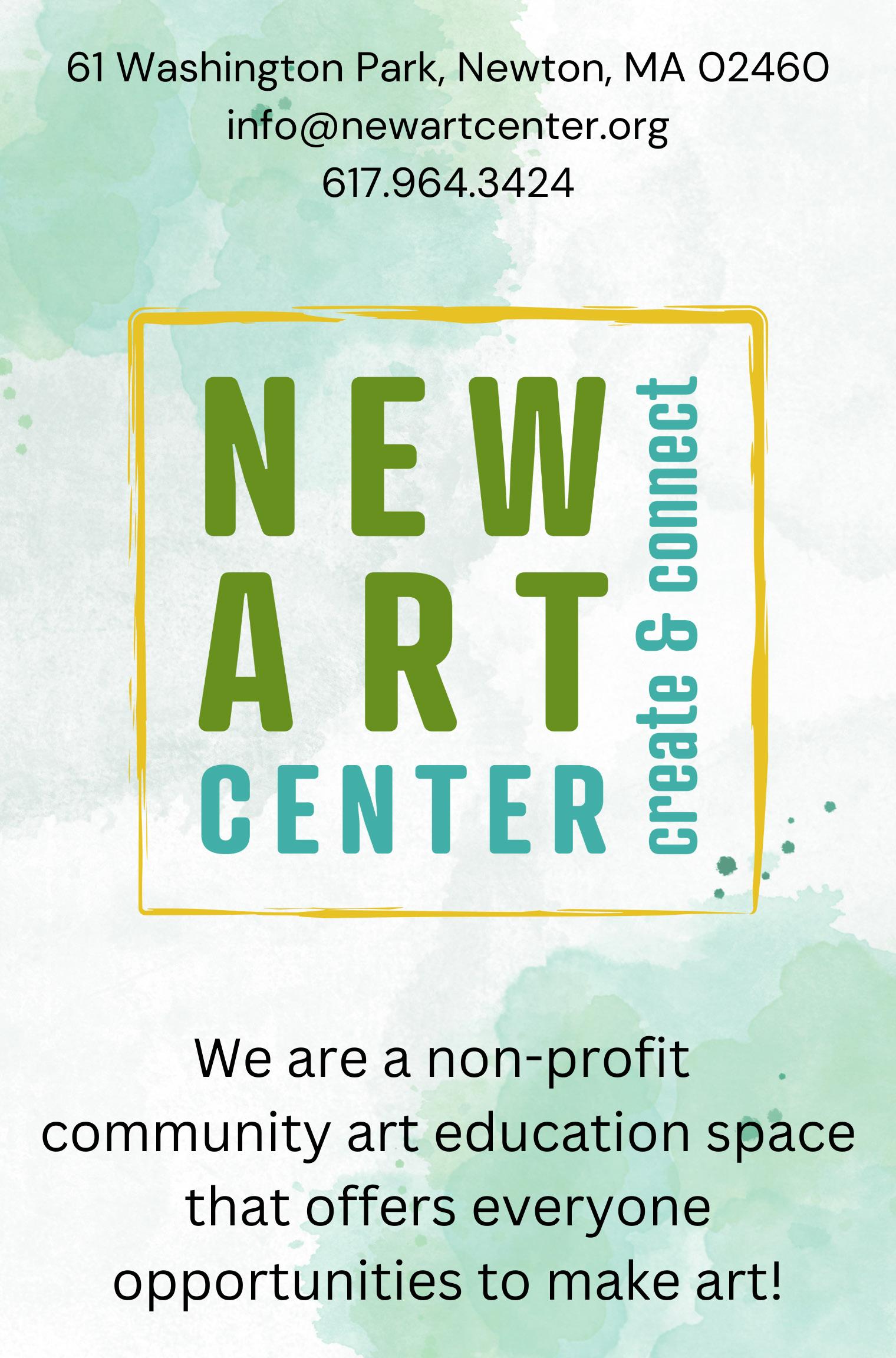


By Irene González
On July 26, 1990, president George H.W. Bush signed into efect the Americans with Disabilities Act (ADA). Te ADA provides a legal requirement for equal opportunity in employment, transportation, public accommodations and access to government services.
In 2008, lawmakers amended the ADA to expand the defnition of the word “disability”, protecting more people under the law.
Disability advocates — along with their representativesingovernment—madethepassage of the ADA possible.Tis watershed piece of legislation that fundamentally changed what it meant to be disabled in the U.S. arose from a decades-longpushfordisabledAmericans’civil rights, and today’s advocates are still pushing for a more accessible future.
On July 17, members of the Newton Commission on Disability (COD) partnered withdisabilityeducationprogramUnderstanding Our Diferences (UOD) to organize a panel that commemorated Disability Pride Month and the 34th anniversary of the ADA.
Gary Alpert, panel moderator and cochair of UOD, said that members of the panel brought a range of perspectives from within the disability community.
“It was really a fascinating experience because everyone on the panel had a diferent disability, including myself,” he said. “I could ask the same question, but I'm going to hear diferent answers. I felt as though I was also an audience member.”
Panelist Nathan Persampieri said that as a disability advocate, he wants to ensure people feel welcome and included. He said the panel was an opportunity to bring more visibility to his mission.
“ Te goal of the panel was to start a disability dialogue in Newton, one that I hope continues,” he said.
“Te conversations around disability are so overlooked and under-appreciated, so it's essential that we have a lot of disability advocates and allies. I hope that as more people start to pay attention, we can form more alliances.”
Te conversations around disability are so overlooked and under-appreciated, so it's essential that we have a lot of disability advocates and allies.
Nathan Persampieri Panelist and COD memeber
Sophomore Oskar Zofer said that those alliances are vital to fght against ignorance.
“Most people don't understand all the struggles that people with disabilities go through on a day to day basis, with accessibility and being comfortable in your own shoes,” he said.
“It's very easy to just get tired of advocating for yourself so much. It makes life a lot easier when other people are allies.”
Part of Jenni Acosta’s role as Director of ProgramCurriculum,GrowthandTechnology at UOD is forming those alliances.
“We're looking for more ways to reach into the community. We really want as many people as possible. Our main approach is to amplify the voices of people with disabilities, to make sure that they are heard,” she said.
Larger than the local community, Zofer said that lack of representation in the media is indirectcorrelationtothelackofgeneralawareness towards the disability rights movement.
“In general, disability is of the radar for a lot of people, because it's not in mainstream media that much,” he said.
“You don't see disabled people in movies, you don't see a lot about them in the news. It doesn't have nearly as much support as the Black Lives Matter movement, or the LGBTQ movement.”
Co-chair of the COD Ima Jonsdottir said organizing the panel required meticulous planning, from the programs to the seating, but that the work was worth it.
“Being a Disability Pride event, we wanted to make sure that this event was as accessible and inclusive as we could possibly make it,” she said. “ Tere are a lot of details that go into that, details that we feel should always be part of any event.”
Acosta said that when it comes to accessibility,ADAcompliancemayfeellikeaburden.
“People don't fully understand, or they feel irritated that they have to comply,” she said. “When then they gain a better understanding then they're more willing to take that next step because someone needs it to be included.”
Zofer, who is a wheelchair user, said that without personal connections, it is hard to understand what being disabled means.
“A lot of people don't realize how inaccessible the world is until they know somebody with a disability,” he said.
As someone whose physical disability came late in life, Inclusive Design Newton founder Robert Solomon said that his disability opened his eyes to an overlooked world.
“Seeing the new obstacles that I was facing, I realized that so many other people are facing the same obstacles, and I wanted to try to help mediate them,” he said.
Both Solomon and Persampieri have been working for years to make MBTA sta-
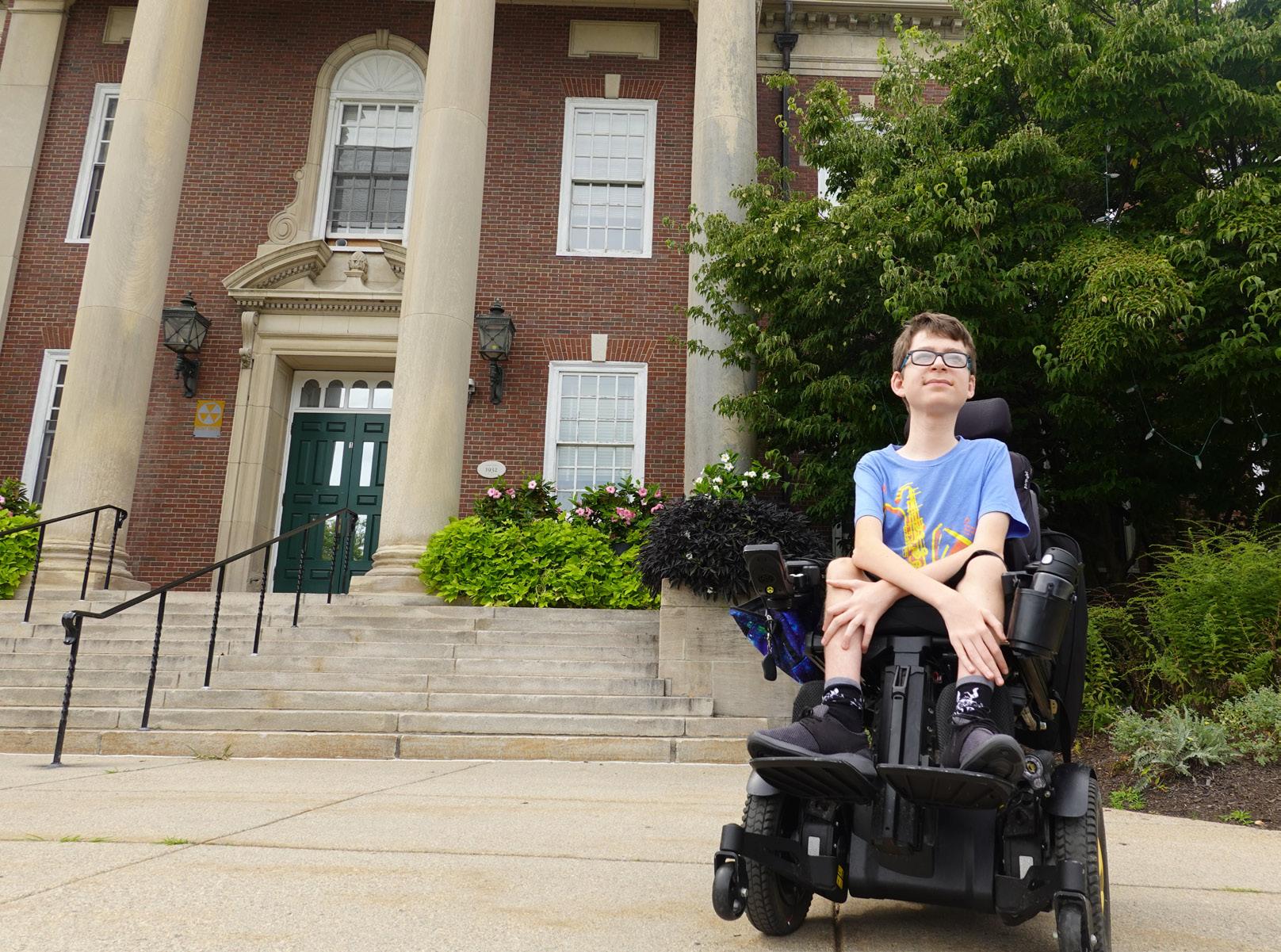
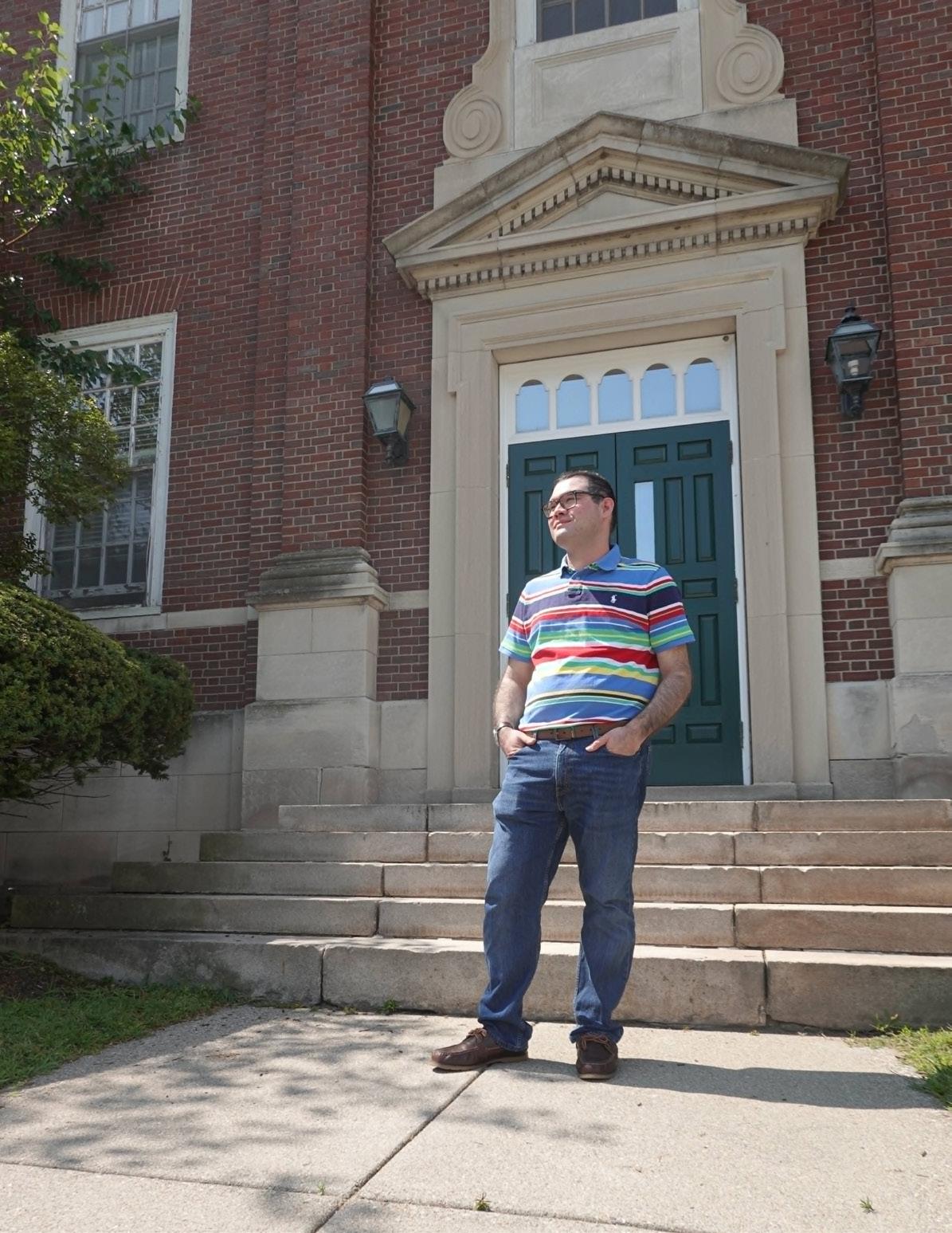





residents continue to advocate


Oskar Zofer
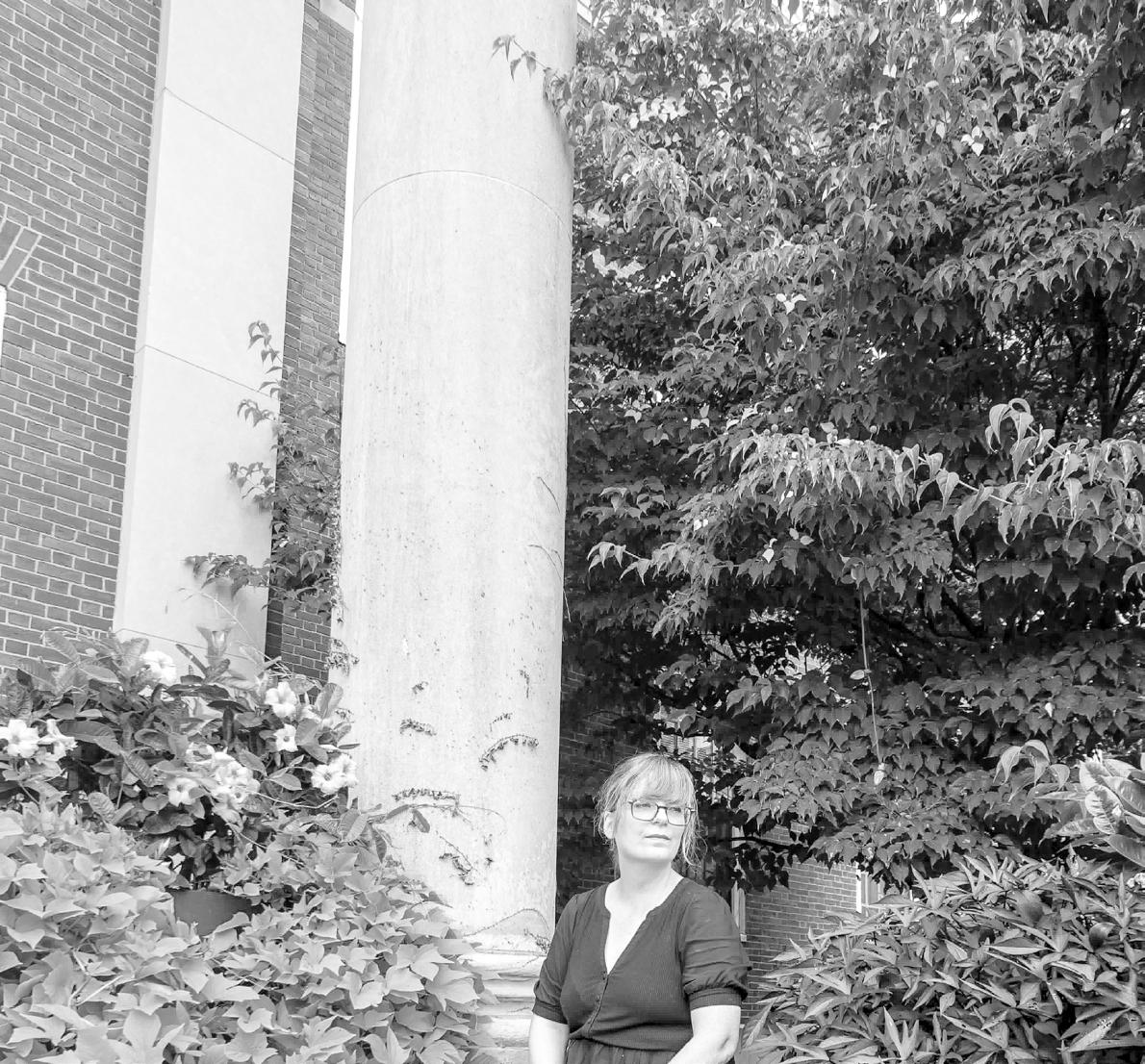
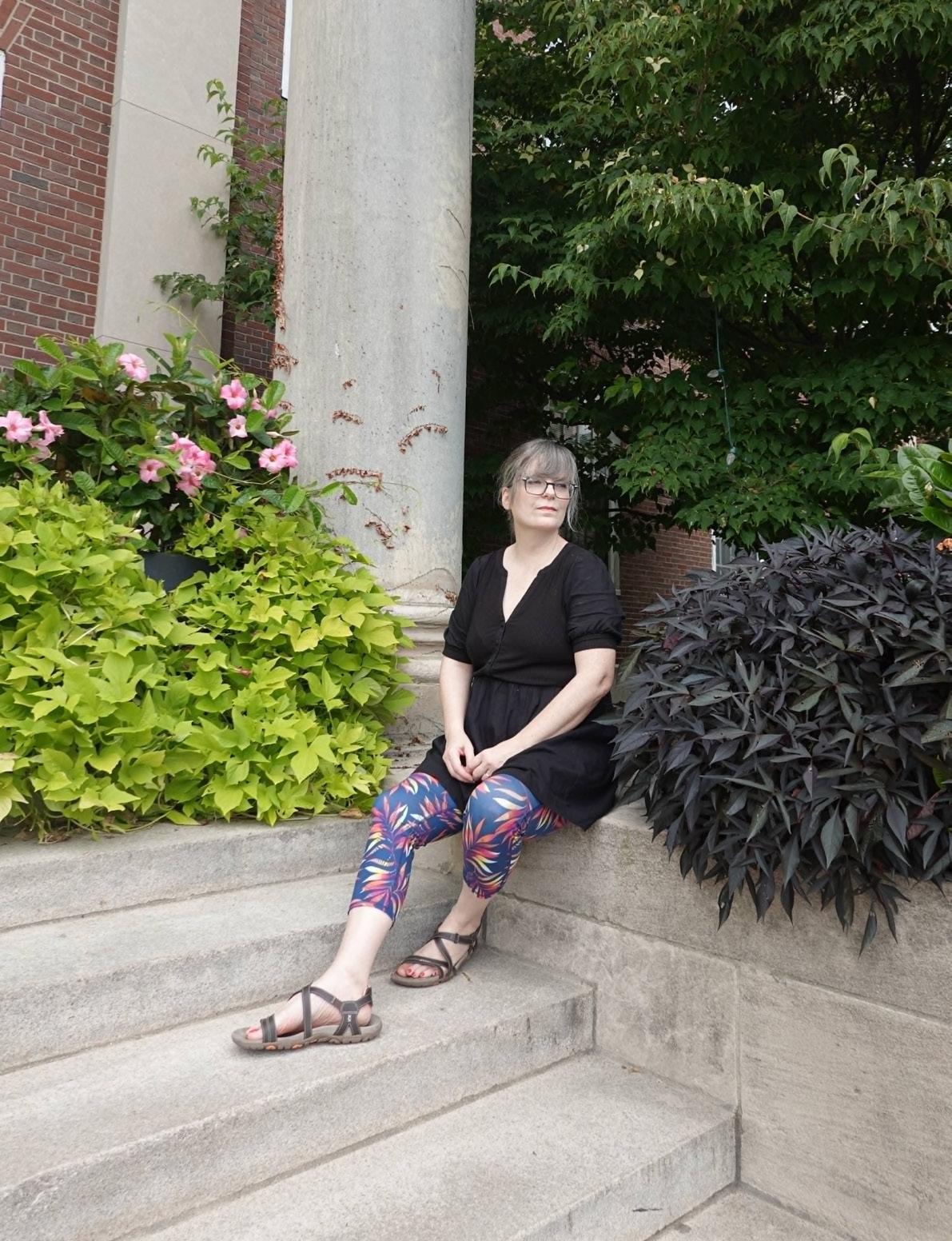
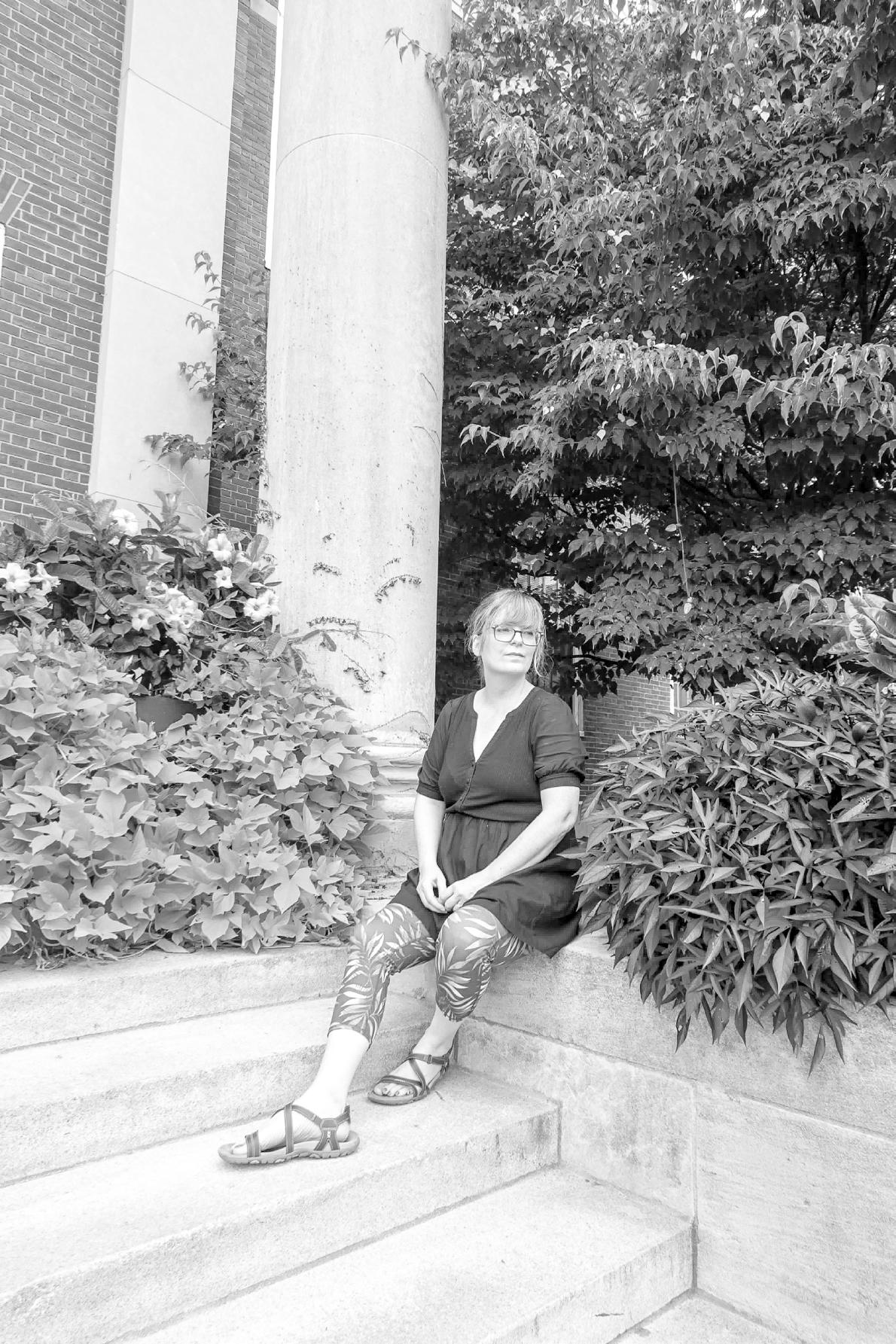
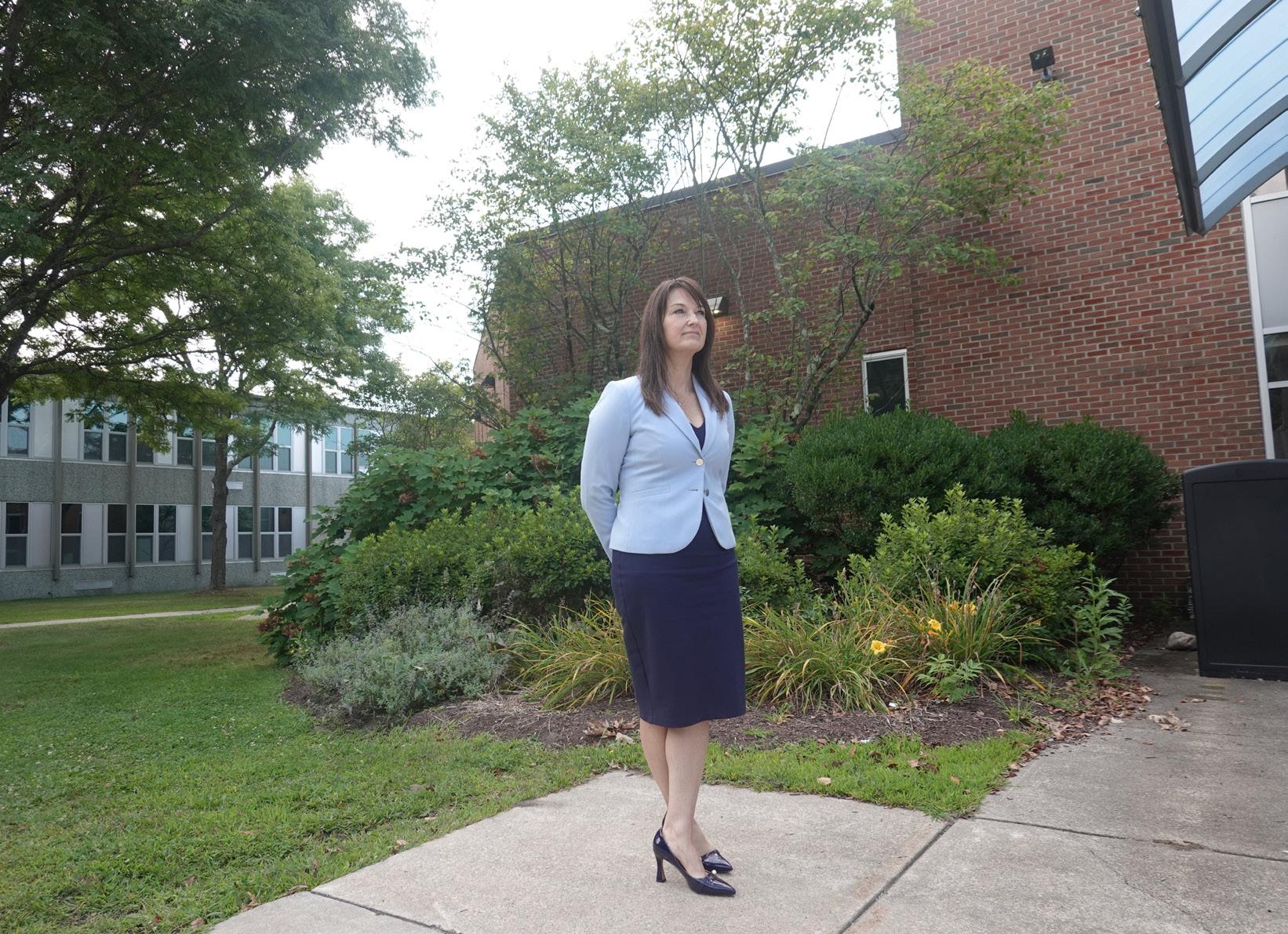
tions in Newton accessible. Despite their work, Persampieri said improvement is slow.
“It's very confusing and frustrating. Part of it is that people aren't aware of the urgent need to fx these stations and to get funding as soon as possible,” he said.
As for accessibility in schools, Superintendent Anna Nolin said that despite outdated buildings that are an obstacle to complete ADA compliance in Newton Public Schools (NPS), NPS adjusts in order to fulfll every student’s needs.
“Tere are schools where we can't serve kids, and so we have to give them a diferent school in order to address it,” she said.
“Most districts outplace their students. Tey pay tuition and transportation to send their kids to specialized, private programs. We only have about 130 students that we do that for.”
Jonsdottir said she has advocated for more accessibility in schools and on playgrounds since her son, who has a physical disability, was in preschool.
“NPS is committed to being as successful and inclusive as they can, and it doesn't necessarily always cost more money. Sometimes it's just a matter of pointing out a simple thing or two that might make all the diference for a child with a disability,” she said.
NPS is committed to being as successful and inclusive as they can, and it doesn't necessarily always cost more money. Sometimes it's just a matter of pointing out a simple thing or two that might make all the diference for a child with a disability.
Ima Jonsdottir COD co-chair
actively trying to include me in their games,” he said.
“Teyreallyunderstooditbetterbecause they got to see it from a personal perspective.”
During budget negotiations, tensions ofen arise around the cost of Special Education programs as General Education programs are being cut; however, NPS is legally obligated to provide certain services to students with Individual Education Plans (IEP).
Te UOD program was founded in Newton and has been at NPS since 1978. At a time before the ADA, when disability was not part of mainstream conversation, UOD served as a tool to educate elementary school students who were the frst to welcome their peers with disabilities into newly integrated general education classrooms.
Acosta, who started as a parent volunteer when her children were in school, said the goal of the program is to make the valuable conversation around disability possible.
“We're trying to raise the comfort level. A lot of people are well meaning and don't engage because they're afraid they're going to say the wrong thing, but that has a sort of exclusionary efect,” she said.
A central part of the UOD program is its guest speakers. Alpert, who experienced the program himself in fourth grade, said the guest speakers each share their unique experiences with their respective disabilities.
“Anytime I had a speaker, there was a connection. I'm not just reading that. I'm not just watching a video, I’m engaged in a conversation. It made it real.” he said.
Zofer, who volunteered to be a guest speaker at his elementary school for two years, said he remembers a distinct shif in his peers’ attitudes.
“Afer I spoke, all the ffh graders were really nice on the playground, and they were
Assistant Superintendent for Student Services Casey Ngo Miller said that NPS is committed to fnding a balance between providing full support to Special Education and General Education.
“We've had to make budget cuts, and ofentimes, when folks at the surface look at where the money is being spent, Special Education does cost a lot, but it's what we need to make our programs run, to keep as many kids as we can within district,” she said.
“We'll fght for money in General Education, but we’re not going to take money from Special Education.”
UOD is not part of the NPS Special Education programs, and in the 2023 budget season, NPS Interim Superintendent Kathy Smith and the School Committee pulled the program for the 2023-2024 school year, a decision met with backlash and confusion from the Newton community.
Nolin said that there are no issues with the program itself.
“$60,000 a year on one disability curriculum that is four lessons a year is a hard ask during a tough budget year. So that's where that conversation started,” she said.
Nolin, who was not part of the initial decision to cut UOD, said NPS leaders looked at the decision to discontinue UOD as an opportunity to not just replace the program, but to build of of it.
“We want every teacher to be doing this themselves,” she said. “Not just with a special guest star, but any time it comes up in a conversation, every classroom, every year, all
the time, embedded in the curriculum in a way that every disabled kid can see their story and feel it in the schools just like everyone else.”
Acosta said that the reasons for cutting UOD were not communicated to the leaders of the organization.
Tere were a lot of misunderstandings, and it is unfortunate, and it's detrimental to the broader conversation about how we can meet the needs of people with disabilities to be included in our city and to be celebrated,” she said.
Although NPS no longer uses UOD, that does not mean NPS is eliminating education on disabilities. Currently, NPS is
developing a new curriculum that aims to incorporate disability education into everyday classes.
Te new curriculum will be presented at the Oct. 7th School Committee meeting, and implemented into classrooms by early November.
Ngo Miller said that NPS needs to remain a leading district in disability education.
“We want to be able to say that everyone in NPS is disability afrming. And that's a whole mindset shift which not a lot of districts are doing,” she said.
“When we look for curriculum now, we're looking for identity afrming curriculum so the kids see themselves in the curriculum, so that it represents the backgrounds that all of our kids are coming from.”
While she works to introduce this new curriculum, Ngo Miller is being advised by the NPS Disability Advisory Group (DAG), which co-chair of COD Jack Lovett is a member of.
Lovett said that the group ensures that schools are advised on disability topics by people with disabilities.
“Te point of the group was to bring to attention issues, whether that's an accessibility issue or a classroom issue. It is an opportunity for people with disabilities to bring issues to the table,” he said.
Although NPS is taking steps to ensure people with disabilities have a voice in the new curriculum, Persamperi said that disabled people need to be involved throughout the entire process, including in the classroom.
“Who else better to teach about people with disabilities than themselves,” he said. “Tey live with it every day, whether it's visible or invisible.”
Persampieri said one of his criticisms of a replacement curriculum is the lack of the personal connections that made UOD stand out.
“I think [NPS] isn’t going to change their mind anytime soon, which is really disheartening to see because UOD is a wonderful program and kids really get a lot out of it.”
However, Ngo Miller said that
it is a goal of NPS to continue creating connections.
“We're in the curriculum’s infancy, and we're trying to partner with our high school age students who identify as having a disability as speakers to come to elementary schools,” she said.
“Tat takes a lot more coordination to pull students, but we want to also make sure that they get something out of it, too.”
Te goal of the new curriculum is not only to be anti-ableist, but disability afrming, which means eliminating the negative connotation behind disability.
Zofer said that he has grown to understand the complexity behind that mindset.
“If there's a fight of stairs, then I'm disabled, but if there's an elevator, then it doesn't really matter,” he said.
“I thought that “dis” was a bad word for a while. I didn't even like associating myself with the word disability because I just didn't like that prefx. But I learned recently that it could also be interpreted as having ability in a diferent way. I’m a human being. Tis disability doesn't defne me, but it's also very important to acknowledge it.”
Information from the National League of Nurses Advancing Care Excellence for Persons with Disabilities Program
Early 1800s - Disability began to be viewed by medical professionals as an individual health issue, and emphasis was placed on curing or modifying the behavior. Tis placed the expertise on the doctor, not the person with the lived experience.
Late 1800s - By the mid 1800s attitude towards people with disability had shifed towards legislation promoting their inclusion in society, though it focused on preventing disabilities instead of supporting individuals with existing disabilities.
Late 1900s - Te passage of the Healthy People Initiative in 1976 and the ADA in 1990, the U.S. aimed to close the gaps in services provided — from healthcare to insurance — to people with disabilities compared to those without in the U.S.. Tis legislation acknowledged the discrimination that individuals with disabilities face and represented the emergence of disability issues into the mainstream conscience.
Today - Although there is still a need for further improvement in areas like healthcare and housing to support people with disabilities, the societal attitude towards disability has changed dramatically in most areas of the world, even in the last 30 years. In order to remove stigma around disability, it’s important to understand that a disability is an impairment because of the way we view the physical or mental limitation and how our infrastructure is built.
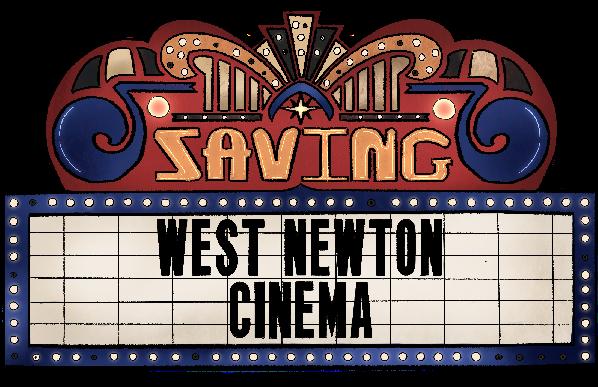
The West Newton Cinema Foundation has raised sufficient funding to purchase and save the historic theater two years after its sale
By Andrew Petrilla
In a truly picture-perfect ending, the nonproft West Newton Cinema (WNC) Foundation announced this summer that it has raised the necessary $5.6 million to save the building from demolition.
Hit hard by the COVID-19 pandemic, the historic theater struggled to remain open as moviegoers worldwide isolated at home. Its owners were forced to sell the building in 2022 to local development group Mark Development on the condition that the cinema could be repurchased by an August 10, 2024 deadline.
Having raised sufcient funds to buy back the building, the Foundation said it has accomplished the frst phase of its two-part goal to raise $14 million to purchase and restore
the cinema.
Newton resident Elizabeth Heilig became president of the WNC Foundation in the summer of 2023. Trilled with the money that the Foundation has raised, she said she has high hopes for renovating the theater.
“Once we've taken care of the must-do things, we'll be moving onto fxing up the space,” she said. “We would love to upgrade the projection, the sound, the seats and make the experience of going there really great.”
Dylan Sort, a WNC employee, said that while the cinema is in need of updating, its quirks add to its charm.
“A lot of the fea


tures are defnitely out of date, but I think it could be argued that that's a compelling feature for the cinema,” he said.
Te cinema, adorned with unique Art Deco fnishes, was frst built in the late 1930s and has been an enduring part of West Newton Square for as long as many can remember.
Sophomore Loiuse Hardigg said she’s enjoyed the WNC for a long time.

“I always liked going there since I was really little, so it’s kind of nostalgic,” she said. “I am glad that it’s not being closed down.”
Unlike other chain theaters in the greater Boston area, the WNC is independently operated. David Bramante, the theater’s owner, said that this factor allows the WNC to be more community-oriented.
“Independent theaters have the ability to seek out flms that are a little more tied to their community and to their customer base,” he said.
The WNC has an important impact on the local economy, too. Bramante said that local businesses on Washington Street have thrived of of the theater’s success.
“I was told repeatedly what a positive infuence the cinema had on the square and on a few businesses that opened there,” he said. “It brings life to a downtown area.”
Lynne Pepall, the Foundation’s treasurer, said she hopes that the renovations will draw new customers to the cinema and make it a Newton landmark.
“We're hoping that this is going to be a cultural attraction that is going to draw people from Newton and beyond,” she said. “We want it to be something the city will be proud of.”
Additionally, multiple members of the Foundation’s board of directors said that they hope to engage Newton high school students
You sit in a dark room with other people and you laugh and you cry; you feel connected to people. It's part of what it means to be human.
J.B. Sloan
WNC Foundation Board Member
through the theater.
“I think it would be so great if kids at Newton South and North who are into flm – either because they're in the coursework, or just because they love movies – if they have ideas for events, we would love to hear them,” Heilig said.
Heilig said that saving the cinema is about more than just having it now, but allowing generations of moviegoers to cherish past memories at the theater and enjoy it for many years to come.
“We're saving it for the future,” she said. “We're saving it for our community now because there's so many people in Newton who have really deep ties going back more than the current generation.”
To Foundation board member J.B. Sloan, flm is about the shared experience between the people in the theater. Audience members may be perfect strangers, but they all go through the same emotions and experience as they watch.
“You sit in a dark room with other people and you laugh and cry; you feel connected to people,” he said. “It's part of what it means to be human.”
Katy Krintzman Features Reporter
Public speaking, logistical business knowledge, quick thinking – these are some of the many strengths that South’s chapter of the Distributive Education Clubs of America (DECA) fosters in its members.
While often underdeveloped in 21stcentury students, DECA helps students nationwide perfect these arts and understand their long-lasting importance.
Senior and club member Sarina Chand said the valuable skills the club teaches can
positively afect career and educational opportunities far into the future.
“We have to make sure that we know a lot of diferent topics depending on what we're going to be focusing on in the competition, so [DECA] helps not only with a world of knowledge, but also your public speaking skills, making sure that you're able to give good presentations,” she said.“It really does help you be prepared for a more career oriented college experience, and also just for when you're actually going out into the work feld.”
However, improving these skills often proves to be difcult. Public speaking, in par-

ticular, is infamous for being uncomfortable for many. DECA Board member Vivian Larsen said that while public speaking can be challenging, it is useful in many diferent capacities.
“[Public speaking] is used across so many diferent careers, and it's really important in helping you be heard in really so many situations,” she said.
Junior Wes Moore said that while most members of the team compete individually, the team maintains a strong community through a variety of events and team spirit at competitions.
“Tere's parties, events and fundraising, and then at the parties you see everybody, and it's kind of one team,” he said.“You also root for the other members of Newton South to do well.”
Senior and DECA board member Jenna Kriensky said that the club’s community at South and at competitions has helped her learn to be more comfortable with public speaking.
“[Te community is] the most social group of kids together, and you put them all in a room together for six hours,” she said. “So I feel like through that, I've gotten to know a lot of diferent people through DECA competitions, and it's really fun to get to talk to people,” she said.
Above all, Larsen said that DECA’s environment is central to its atmosphere and what allows its members to better their academic and business knowledge.
“It's just a really great community. Everyone there is super outgoing and friendly and supportive, so you get to meet a lot of new people,” she said.“It's a really good opportunity to represent South and get more involved with the South community.”
Everyone's been working together to be the best members we can be and do as well as we can ...I'm proud of my teammates for doing what they did.
Sam McFarland class of '25
Typically, only a couple of members make it to the annual national conference; however, four members represented South at the event in California this year.
While their team was small, senior and president Dhruv Vallurupalli said they drew on their strengths to compete and worked hard.
“It was still a great experience,” Vallurupalli said.“I got to meet a ton of people and got to just experience internationals.”
Senior and vice president Sam McFarland said this achievement shows the strength of the team and refects proudly on DECA as a whole.
“Everyone who made it is really talented, and they worked really hard to make it. It just shows that everyone's been working together to be the best DECA members we can be and do as well as we can in the competition,” he said. “I’m proud of my teammates for doing what they did.”
Joey Giragos Sports Editor
If you were a student at South last year, you probably saw posters in the hallways promoting Aviv Hoitash’s campaign, with the trademark slogan,“Believe in Aviv,” plastered in bright orange letters on the bottom.
Te class of 2025 truly did believe; Hoitash was re-elected as class president. But for someone as driven as Hoitash, no one’s belief in Aviv is as important as Aviv’s himself.
"Believe in Aviv—it was my election slogan, but it's much more than that. It’s a motto and a reminder to believe in myself every day,” Hoitash said.“I try to convey that energy around me and help others believe in themselves, too."
Hoitash grew up with two younger brothers and embraced his responsibilities as a leader and role model from a young age. But before and even during his presidency, he said he acknowledged that he had areas to improve on.
"My biggest weakness was compromise,” he said. “At the beginning, I had my opinions and felt like that’s how things should go, but I’ve learned that listening to others and creating
[Aviv] taught me that I should always try to stay uncomfortable in order to bring out the best version of myself.
Matt Welch class of '25
a good compromise is actually a more accurate representation of what the class wants."
Lexi Michaels, English teacher and faculty advisor for the ‘25 class ofce, said she has been witness to the development of both Hoitash’s strengths and weaknesses since he was frst elected class president in junior year.
“One thing I've watched about Aviv is that he has taken a lot of individual ownership and leadership over things,” she said. “I've watched him gain confdence in this role and be really good about feeling like he knows what the class needs and trying to fgure out how to communicate that to people around him.”
Hoitash said that he recognizes the importance of being the face of an entire grade and strives to be an understanding and empathetic leader to all.
"Te skill of uniting and connecting all these diferent kinds of people with diferent backgrounds—that’s been important for me,” he said.“When we plan events and fundraisers, we have to keep in mind that our grade is 450 people, all with diferent opinions and views."
Fellow class ofcer and friend Michael Shen said that Hoitash’s work ethic and innate self-confdence helps motivate not only himself but the entire class ofce to produce high-quality events for the grade.
“Aviv is really good at taking initiative on stuf,” he said. “He's small but he has an aura, like he's cocky in a good way.”
Class ofcer Dhruv Vallurupalli said that while Hoitash’s lighthearted nature is something all his friends and peers can attest to, he is consistently hard-working and responsible.
“He can be pretty unserious sometimes, but when it really calls for it, he can be serious,” he said.“He can take the lead and get everything that needs to be done, done.”
While Hoitash has to balance his respon-
sibilities as class president with school work and college applications, he still fnds time to engage in activities outside of school relating to his passions for coding and computer science.
With experience in six diferent coding languages, Hoitash works with young kids at the Penguin Coding School in Newton Centre and interns at an early-stage startup cybersecurity company.
Also a co-president of the South Com puter Science club, Hoitash led a group of club members in a project at Harvard Medical School, creating an AI model to identify Zebraf ish heart locations at various developmental stages. Fellow co-president and senior Noam Elyashiv, one of the members involved, said that Hoitash’s mentality anchored the project and helped it succeed.
“He was very ambitious about achieving our goal and creating a very robust project,” he said. “He would, in his free time, run algorithms and try to train his own model.”
Senior Matt Welch has been friends with Hoitash since middle school and has been witness to Hoitash’s leadership ever since. Welch said that one particular anecdote from freshman year still sticks with him.
“I was in accelerated math, and I was do ing really well in it, yet I didn’t believe I was good enough to move up to honors for the next year,” he said. “I remember Aviv encouraging me to push myself and he reminded me that I could be limiting my potential. He taught me that I should always try to stay uncomfortable in order to bring out the best version of myself.”
For Hoitash, it’s been a high school
experience highlighted by hard work and creating meaningful building blocks for his career. So what does the future hold? Hopefully a combination of the skills he’s learning today in both leading people and working with coding. "My dream job is to be the CEO and owner of a company I build from scratch,” Hoitash said. “Newton has prepared me for that in many ways—through both the hard coding skills I’ve learned and the leadership like collaboration

The Roar follows four seniors with different interests as they navigate the college application process. Their identities will be revealed as they make their decisions
By Bethesda Yeh

Like many of her athlete peers, Anne’s* soccer recruitment journey began with emailing coaches in her sophomore year.
Unlike most athletic recruit hopefuls, however, she has also decided to apply during the regular admissions cycle.
“It’s twice the work,” she said. “It’s a little difcult because most of [the coaches] just strongly prefer their players to ED and commit, usually towards the end of the summer.”
Having initially joined the Super Soccer Stars program as a toddler, her undying love for the sport eventually resulted in her joining South’s soccer team in her freshman year.

When Clara* joined South’s debate team in her freshman year, it was merely a surrender to her parents’ insistence that the activity would suit her, as someone who had always been fond of arguing. Tree months in, she said she already felt overwhelmed by the hulking workload.
“I was about to quit. It was so hard," she said. “I decided to keep going partially because of my mentor, who just graduated last year [and] the culture on the team.”
Now, Clara serves as a novice captain and mentors freshmen of her own.
Initially unsure of his interests as a freshman, Lucas* frst entered the world of business and economics when he took South’s Intro to Business course as a sophomore.
One thing led to another, and soon, he had immersed himself in the stock market, taken a summer course on macroeconomics, and joined South’s DECA chapter.
“I thought it was really interesting how frms make decisions based on trends that they see throughout the markets,” he said.
Lucas said he plans to continue his studies in fnance and economics in college.
“Economics is what's behind what businesses do, so I want to learn the economics of the business frst,” he said. “I can get the best
She said that as a team sport, soccer has allowed her to forge close friendships with her teammates.
“It's pretty cool that when you work together, somehow you can still beat a more talented team,” she said. “It's not like track, where you just have a time and you're either faster or slower.”
Anne said that for her, one challenging aspect of the sports recruitment process is that due to the limited number of spots in each school, recruitment is never guaranteed.
“You can be in contact with a school for a while and really be deep in the process,” she said. “Tey still might be like, ‘Oh, sorry, at the end of the day, we don't have a spot for
Despite having taken classical piano lessons since the age of six, it would be another six years before Josh* found that his true musical passions lay elsewhere, in the electric guitar.
Today, he prides himself on being a well-rounded musician. In addition to being a guitarist, he is also a bassist, drummer, music composer and producer. He is also part of a band with his friends at South, something he said will likely be a lifelong pastime.
“Right now, [music] is a passion, and I hope it always is,” he said. “I will always be in a band, will always be making music no matter what, even if it's not my full-time [job].”
Although Josh has not defnitively
of both worlds where I learn about why businesses would do what they do. And then the fnance can actually teach me how to do that.”
Lucas hopes to attend a school with an urban campus. Some of his top choices include NYU, University of Michigan, UMass Amherst, UCLA, UC Berkeley and Columbia. He said he is also looking for an uplifting community within the campus.
“Doing research and even touring the school, you can see generally how happy the people are,” he said. “Regardless of how prestigious the school is, how highly ranked it is, if the people there just aren't really enjoying their time, [it’s] probably not a school that I would want to go to.”
you.’ Tat’s defnitely been hard.”
For soccer, Anne’s top two choices are Oberlin College and Bryn Mawr College, and her top non-soccer choices include Brown, Duke, UMass, Case Western and Barnard.
Aside from soccer, Anne is also looking for a strong STEM program. Having been intrigued by science classes in the past couple of years, she is considering a career in medicine, particularly pediatrics.
Ultimately, Anne said her goal is to be able to look back and be proud of the work she’s put in.
“I defnitely don’t want to regret any part [or] have any what-ifs,” she said.
decided whether he plans to apply to music school or a school with music programs, he said that attending a summer program at Berklee this past summer pushed him towards wanting to apply to music school.
“Te environment is very friendly, very open. It's just nice to be surrounded by people who have a common interest,” he said. “I defnitely see myself there in the future.”
Berklee is currently Josh’s top choice, where he's set his sights on studying production and music engineering. He is also drawn to Belmont University, which ofers a musicengineering program, and Hofstra University, which ofers a music-business program.
“Being a performer just is not realistic,”
Even with a draft of his personal statement done, Lucas said he has spent much of his summer continuing to brainstorm new ideas.
“To fnd something that is really meaningful, that you can write about, that helps connect a lot of things in your application, that's not already stated [is] pretty hard,” he said.“You can make it look nice afterwards, but that initial idea is defnitely the hardest part.”
As he has continued to research individual schools, Lucas said he has grown fonder of the thought of college itself.
“Living in a college with people your age having the same interest as you would be pretty fun,” he said. “Right now, I'm actually really looking forward to college.”

he said. “My overall, general passion for music will be best applied in a producer role, and I do fnd production really interesting.”
If he does not apply to music school, Josh hopes to go into either the psychology or business feld, and his options include UMass Amherst, University of Vermont, Emerson College and Skidmore College.
With most of his Berklee application and Common App personal statement complete, Josh said he will spend the beginning of his senior year preparing for interviews as well as a musical audition for Berklee.
“Whatever the outcome is, I hope that I am proud of where I am and that all the work that I’ve done pays of in some way."
With an interest in US politics specifcally, Clara aspires to major in political science or something similar and become a lawyer. She plans to apply early action for Georgetown University, and her other top choices include UPenn, Northwestern, Emory, WashU and UNC Chapel Hill.
Clara said writing her essays has been
“Being able to see the new freshmen come in and go through the same learning curve I did, be freaked out, and then absolutely fall in love with the activity, is so amazing to me,” she said. “I've learned so much about the world around me … Politics, international relations, economics, random domestic policy, random things that I'm never going to need to know again, but it's cool.”
difcult, especially because she struggles to write concisely.
“It's always been one of my problems in English class. I'm always over the word limit,” she said. “Having to explain my entire person, why I'm a good ft for that college and why I'm someone they want to have there in only 650 words is really, really daunting to me.”
She said that flling out the activities section, however, was a satisfying task.
“Seeing a culmination of years of work and laying that out for myself … is really cool,” she said.

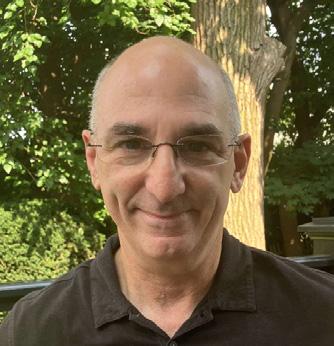
Alan Reinstein
Welcome to “Circle Up,” a Roar column that aims to structure itself as a circle activity. Te circle is the central tool used in the restorative process, which is a strategy useful not only for repairing harm or solving problems but also for building community and having discussions. Any place where people have things they want to talk about can be a place for a circle. You’ll get used to the structure. Let’s get started.
Opening Quotation: “Te journey of a thousand miles begins with one step,” from Lao Tzu, the great philosopher of Taoism. Step into the school year.
Check-In: Describe yourself today as if you were the weather. Me? Sunny, with some clouds foating around. I begin the school year with enthusiasm and optimism but also with an eye on stormy events on the national and world landscape. Te upcoming presidential election reminds me of the divisive political and cultural discourse and raises worries about more acrimonious discussions to come. Likewise, roiling conditions in the Middle East and Ukraine are fraught with agony that afects many students and families of the South community.
Round 1 (something easy-ish): Share one happy detail from your summer vacation. Me again. During a cross-country road trip to LA, my wife Viviane and I found the Ashtabula County Fair in Jeferson, Ohio, a true county fair in the folds of Americana that included 4-H-competitors with gentle goats and immense pumpkins, a traditional midway with games of chance and the pirate ship ride, and tired parents with kids on their shoulders. Tere were also t-shirts and banners supporting political candidates (one, in particular) that reminded both of us of the rising fever pitch of the upcoming election season and the broad world of concerns that rest both inside and outside of our community. And still, this Saturday evening fair with pink clouds and funnel cakes is a happy memory of the summer. (Oh yeah—also watching badminton and Céline Dion at the Olympics.)
Round 2 (a little deeper): What do you like about South? One of the things I like most about this place is the eclectic choice of clubs that students invest themselves in and the diversity of thinking and interests that is revealed by them. South celebrates this openness and diversity in a way that invites so many freshmen into its supportive fold and allows upperclassmen the chance to lead and support them. Our school’s spirit is perhaps diferent from the traditional rah-rah Friday-night football lights of the Ashtabula County high schools, but that’s because the arteries of the school are widened by the enormous variety of passions among the student body. What’s not to like?
Check-Out: One word that describes your feelings at the very start of the school year: hopeful and energetic. (Two words, I know. You can stretch the rules sometimes.)
Closing: An African proverb: “If you want to go quickly, go alone. If you want to go far, go together.” At our best, we’re here for each other, as well as for ourselves.
Well, there you go—your frst circle of the year. It’s a beautiful thing, this circle, a format that helps us listen to others and feel listened to also. Welcome to the school year!
By Bethesda Yeh & Sissi Zhu
Amid the schoolwide chaos of cramming for fnals and end-of-year celebrations last June, 50 lucky students from North and South had one added task: packing their suitcases in preparation for NPS’s annual Prague trip.
Initiated in 1989 by North history teacher Ty Vignone, the trip has become a yearly staple for Newton high school students. For a little over two weeks, students immerse themselves in Central European history as they explore the cities of Kraków, Poland; Prague, Czech Republic; Dresden, Germany and Berlin, Germany.
Highlights of this year’s trip included licking the walls of the Wieliczka Salt Mine, admiring the iconic St. Vitus Cathedral, rafting through the waters of Český Krumlov, visiting Dresden’s Volkswagen car factory, getting an exclusive behind-the-scenes tour of the Euro 2024 championship in Berlin’s Olympiastadion and biking on the runways of the abandoned Berlin Tempelhof Airport.
Sophomore Ari Farber said that the trip’s hands-on approach allowed him to gain a tangible understanding of history that extended beyond learning the subject in a classroom setting.
“You have to go explore a city,” he said. “It's just so dif it in-person. Tat's where you really grasp what was going on.”
Some destinations had heavier histories. For example, the group visited many Holocaust and World War II sites, memorials and museums, including the Auschwitz concentration camp and Lidice.
North sophomore Oliver Chi said that visiting these sites of tragedy was a sobering experience.
chwitz or Lidice],” he said. “At the end of the day, history books are just words on the page. You can imagine them, but it doesn't really compare to what it actually is.”
North history teacher and history department head Gregory Drake said his goal is to get students to think about history from a diferent perspective. Tis was his 20th summer on the trip.
“It's not just about learning what happened in these places,” he said.“It’s about learning about what happened and learning about how the people who live there today remember it.”
Although students’ per formance on the trip is graded, allowing them to earn history credits, non-academic aspects are emphasized as well. North history and special education teacher Stephen Hess, who went on the trip for the third time this summer, said the shared experience lets students and teachers establish more personal connections.

“I wasn't really prepared for either [Aus-
that well,” she said. “It actually surprises me how fast the group melts together. [It’s] a great team bonding.”

During the Prague segment of the trip, students were accompanied by Czech high school student and local Daniel Pachl. In past years, Newton students were joined by Pachl’s older brothers, David and Michael, and this year marked Pachl’s second time on the job alone.
While Pachl’s primary objective is to help students familiarize themselves with the Czech Republic through a Czech perspective, he said that he, too, gains new insights from being on the trip.
“I defnitely like to see how Americans look at these landmarks,” he said.
Pachl said that for him, the trip serves as an opportunity to speak English with native speakers as well as learn about American culture.
“[Students] get to see the teacher as a more human person,” he said. “Te teachers, vice versa, get to see kids relax a little bit and not be so worried about getting graded.”
Sophomore Katherine Zarate said that the learning opportunities the trip provided extended beyond
“I became more independent [and] aware of my surroundings,” she said.“I certainly don't think you have to be obsessed with history, because I didn't enjoy history very much. Traveling and socializing really made the learning more fun.”
Senior Hanning Lu said that she appreciated the trip’s friendly social dynamics.
“I didn't expect to know other people
“What I enjoy the most is meeting people and getting to know them because they are very diferent from Czech people. I like to ask them how stuf is going in the US,” he said.“It's the only opportunity that I get, and I'm really happy that I have it.”
Retired North special education director Walter Lyons, who went on the trip for the 24th time this year, said that his goal, while somewhat lofty, is to make the trip life-changing for students. Often, he said, it is.
“Te interaction and growth that we see on the trip is measurable and palpable,” he said.
“I hope students take away an appreciation for travel, an appreciation for interacting with each other, an appreciation of diferences, and the ability to have the courage to try new things and to take chances.”
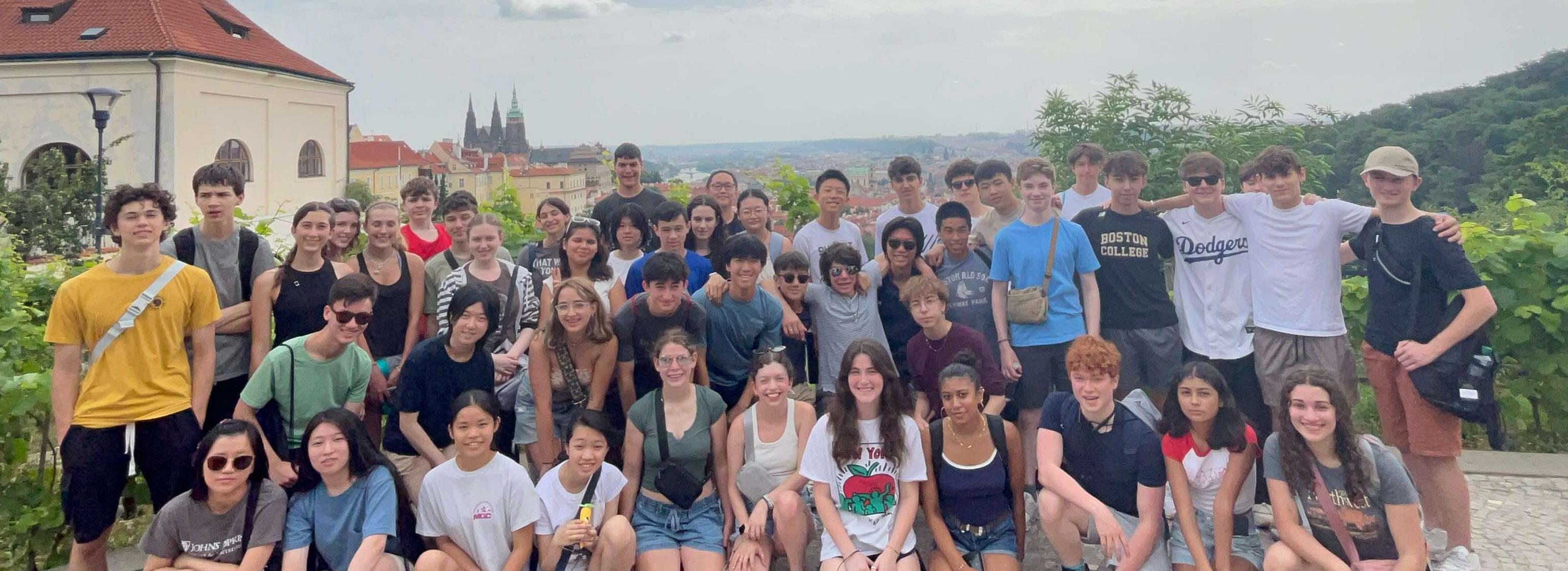
By Joey Giragos & Ronen Hemlich
The 16th edition of the Union of European Football Associations (UEFA) Euros Championship began on June 14, marking the start of the largest continental tournament in global professional soccer, which occurs every four years.
Despite the excitement and anticipation of the European Championships, this particular Euros would hold more sentimental value to many soccer fans across the world.
For many of the most well known and beloved players of the last two decades, Euro ‘24 will presumably be the last time seeing them at an international competition, including stars such as 39 year-old Cristiano Ronaldo, 38 year-old Luka Modric, 41 year-old Pepe, 33 year-old Toni Kroos, 38 year-old Manuel Neuer and 37 year-old Olivier Giroud.
Many predicted star studded France, led by talisman Kylian Mbappe, to win the euros, but ultimately, it was the organized and tactical Spain. Managed by the experienced Luis De La Fuente, Spain shattered English hopes of Football “coming home”,
by beating them two goals to one in the fnal at Allianz Arena in Munich.
Despite having reported“weaknesses” in captain Alvaro Morata, as well as in key defensive positions, Spain played fuid attacking soccer, highlighted by the brilliance of two incredibly young talents in 21 year-old Nico Williams and teenager Lamine Yamal.
Te next Euros will be in 2028, with matches set to be held at 10 grounds, most of them in England and Ireland.
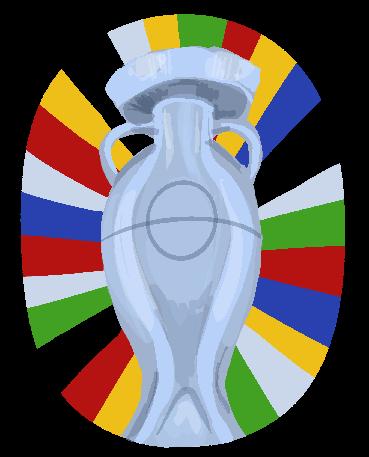
There’s only one thing you can do when expectations are that high: meet them.” Te words of Boston Celtics radio broadcaster Sean Grande as he articulated the team’s championship expectations rang true to every fan who had watched the Celtics fall short time and time again in previous years.
Going into the season, Grande was correct; it was championship or bust for the Celtics with their fashy additions in Kristaps Porzingis and Jrue Holiday, and anything short of illustrious banner 18 would’ve been considered a colossal failure.
Having moved on from the beloved yet inconsistent Marcus Smart in the trade that brought Porzingis to Boston, the Celtics had lost their longest-tenured player, and doubters still wondered if Jayson Tatum len Brown could truly exist on a championship team.

However, the team’s utter dominance throughout the regular season culminated into an elite record of 64 wins and 18 losses, with players such as culture icon Derrick White and three-point merchant Sam Hauser putting up career years.
Te beginning of the postseason provided little difculty, as inspired performances from Tatum and Brown carried the Celtics through the Heat and Cavaliers in fve games each.
Despite getting swept, a budding Indiana Pacers team put up a real fght in the Eastern Conference Finals, with the Celtics needing a number of last-second plays to deke out the victories. Brown’s game-tying three pointer in game one and Holiday's clutch steal of Andrew Nembhard in game three will go down in history as some of the most important moments of the championship run.
In the fnals, despite having one of the best players in the world in Luka Dončić, the Mavericks looked overmatched for almost the entire series, and a Payton Prichard half-court buzzer-beater before halftime of Game fve provided another signature moment as the Celtics won the illustrious Larry O’Brien trophy.
Beginning at Mercedes-Benz Stadium in Atlanta, Georgia, the 48th edition of the Copa America was kicked of between Canada and favorites Argentina. Spanning across the entirety of the host nation United States of America (USA), the Copa America encompassed North and South America’s best teams, and proved a solid test for the United States soccer infrastructure ahead of their hosting of the 2026 World Cup. Historically, the fnal of the Copa America has been predominantly played between the two South American giants, Brazil and Argentina, but in absence of a strong Brazil team, Columbia became clear favorites half way through the tournament. Playing aggressive attacking soccer led by captain James Rodriguez Colombia cruised to the fnal against Argentina, who made the most of an easy path to the championship. While some teams exceeded expectations, the United States’ men’s national team (USMNT) was unable to perform convincingly in any of their group stage games.
Despite the USA felding the strongest team they’ve had in decades, with the major-
ity of their players playing for top European teams, they embarrassingly crashed out in the group stage, predominantly in part due to a horrifc 2 goals to one loss to Panama. Not all is lost for the USMNT, however, as the rough performances gave way to the departure of controversial manager Greg Berhalter, who has been blamed for compromising the development of the USA’s “golden generation” of soccer players.
In the fnal, Argentina and Columbia played out a game of trademark South American football: physicality, fouls and defensive organization. Te game was ultimately decided by substitute Lautaro Martinez, who scored past 110 minutes, breaking Columbian hearts and giving Argentina their third consecutive major international trophy.

All great things must come to an end, and this summer signaled the complete end of the New England Patriots’ legendary dynasty.
Coming of a putrid record of four wins and 13 losses, which saw the dismissal of legendary head coach and general manager Bill Belichick, a full rebuild was clearly in the cards for the Patriots in the 2024 of-season.
During the 2023-2024 season, former frst-round pick Mac Jones had thrown more interceptions than touchdowns, and the Patriots' once dominant defense had slipped in production after injuries to defensive end Matthew Judon and cornerback Christian Gonzalez.
So after trading Jones to the Jaguars and mutually parting ways with Belichick, owner Robert Kraft embarked to fnd his predecessors, eventually hiring former linebacker Jerod Mayo as the head coach, and promoting Eliot Wolf to general manager.
Te Patriots’ passionate fan base was excited about these hires, but their focus shifted quickly to the upcoming National Football League draft, Mayo and Wolf’s biggest responsibility yet.
Tanks to their terrible record, the
Patriots had the third overall pick in the draft, their highest selection since 1993, and they ended up selecting Drake Maye, a quarterback from the University of North Carolina.
Wolf and Mayo continued to boost the Patriots ofense, which had ranked in the bottom three in the past season, selecting wide receivers Ja’Lynn Polk and Javon Baker later in the draft.
While veteran Jacoby Brissett will likely begin the season as the Patriots starting quarterback, surrounding the highlytoutedhighly-touted Mate with ofensive weapons such as Polk and Baker will be key to his future development.
While the results may not be perfect this season, fans should be getting excited

Olivia Whitaker Sports Editor

What's a day in your life like when you're training for the cross-country season?
"Earlier this summer, we did a captain's practice… we split of into groups based on how far [each person] wanted to run. Half the group did one mile and the other half did two. Ten after, we all cooled down together.
So far this summer we’ve only had two captains practices, but we’re hoping to do one more next week and maybe one more after that, just so everyone [on the team] feels prepared."
What do you do for individual training?
"So for me, particularly, I've been dealing with shin splints a lot. I've been doing a lot of elliptical training and I've been going to [physical therapy], doing those exercises outside of physical therapy, and of course going on runs.
I try to meet up with other people from the team to run because that just makes it so much more enjoyable. Like, tomorrow, some of us are going to train on the elliptical at the [YMCA] together. If we have workouts, we'll try to meet up and do those, since it’s way more motivational if you're with other people from the team."
What do you do to prepare for a race?
"For cross country, people always say to carb load the night before. I don't really know how much that helps, but I try to do it. Usually we'll leave school a little bit early… so during lunch, I'll try to not eat as much food as I can. Obviously, I'm nervous, so it's sometimes hard to eat, but I'll make sure that I am eating and drinking water all day. It's kind of hard to focus on classes if you have a big race, but I try to use the classes to distract me, and then when I'm on the bus going to the meet, that's when I start thinking about my race and focusing on that, and I'll plan out the snacks I'm going to eat to get me through the time left…
On the bus, I try to get excited, get hyped and surround myself with people who are positive, and I also try to bring that positive energy before the race. Ten we do our warm-ups, which help me whenever I'm nervous…sometimes we'll do a really short 30 second jog early before our warm-up just to get moving a little bit if we're nervous. Tat's my routine."
What advice do you have for athletes who aren't sure how to train for the cross-country season over the summer?
"Our coaches gave us training plans and we have a Facebook group, and those are posted there, so anyone who wants to can look at those. I would say it really helps to run with someone else… Also, what I've done this summer is I made a spreadsheet, so I've been recording what I've been doing. Tat really helps because you can look at [everything] all at once. It's just helpful to have it written down on paper to keep yourself motivated."
What's your favorite part of being on the cross-country team?
"I like how the cross-country is pretty small, so it feels like we're more tight-knit. It's hard to go out and run a 5k, so
I feel like doing that with other people helps you get closer to them because it feels like you're overcoming a challenge together. Some workouts get really tough, but having your teammates there to cheer you on really helps you push through. So just the people in general, they’re really great."
What are some lessons that you've learned from being on the cross country team?
"'Don't give up if you're last' seems pretty self explanatory, but cross-country has defnitely helped me understand it more. If you're in a race, it's hard to keep pushing the entire time, but if you fnd someone in front of you and try to stick with them or pick out a target and try to pass them, that's something that helps me. If you have a teammate who's a similar speed to you, you can race with them, and seeing the South uniform right next to you, or even in front of you, really helps you stay in it."

Owen Halberstadt & Mitchell Lookner Sports Reporters
Te National Collegiate Athletic Association (NCAA) witnessed signifcant changes in the structure of their conferences this year, with 15 diferent schools changing their position within the organization.
Te Atlantic Coast Conference gained three new teams this offseason, adding Southern Methodist University, Stanford, and University of California, Berkeley (Cal) to their conference.
Te Big 12 extended its conference as well, adding Arizona, Arizona State, Utah and Colorado to their now 16-team conference.
The Southeastern Conference (SEC) also made changes, adding Oklahoma and Texas to their roster. Conference USA and the American Athletic Conference made minor changes, adding Kennesaw State and Army, respectively.
Te Big 10 intro duced four new teams to their conference as well: Oregon, University of Cali fornia, Los Angeles (UCLA), University of Southern Califor nia (USC) and Washington.
Tese recent changes have resulted in the extinction of the Pac-12 conference, with 10 of its 12 schools hav ing left to join conferences. leaves Washington State and Oregon State stranded, looking to land themselves a spot in a diferent conference.
The realignment has caused many changes in the inner workings of college sports, and some of these changes have been scrutinized by fans. College sports have many historic rivalries, like Ohio State-Michigan, Duke-UNC, and Auburn-Alabama. Te dissolution of the Pac-12 split the teams across the other four main Power conferences, so schools who were historically rivals won’t be playing each other as often in the future.
However, the most notable rivalries - USC-UCLA, Washington-Oregon, CalStanford, and Arizona-Arizona State - were all kept intact. Tese rivalries are the most anticipated by players, fans and students alike, so the anticipation for the rivalry games will
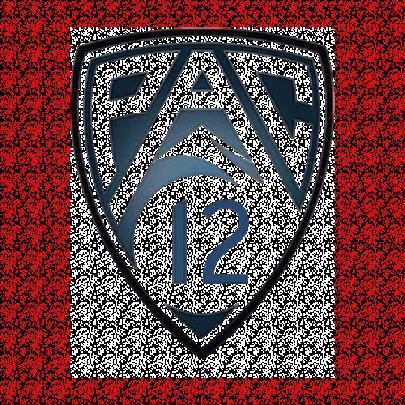
e new, larger conferences are also less hospitable to rivalries. NCAA football has a 14-game schedule, and with conferences now having 16 or 18 teams, teams won’t be playing many of their con-
Another drawback to the conference realignments is the distance between the schools. e schools from the Pac-12, as the name suggests, are all in close proximity to the Pacifc Coast. Now, many of them will be forced to frequently make cross-country
For example, UCLA’s football team is
slated to travel 22,134 miles in just six road games this upcoming season, and nearly 13,000 of those miles come from visits to their new Big 10 rivals Nebraska, Penn State, and Rutgers.
conference realignments will result in many positive changes, one being that some schools will have the opportunity to increase their overall revenue. Moving to powerhouse conferences such as the SEC or Big 10 can give teams access to increased media deals and TV sponsorships, and with more schools in each conference, the deals are becoming more lucrative than ever.

Bigger conferences with stronger teams can lead to enhanced competition and better overall games.
If a conference like the Big 10 now has teams such as Washington, who went to the College Football National Championship, Oregon, who fnished with a 12-2 record last season, and a blue blood team in USC, the games in the conference will now be more exciting and more competitive, providing a better experience for fans and more attention from the media.
Fans will now get to see a 2023 College Football National Championship rematch out of Michigan vs. Washington in the regular season, along with the famous annual Michigan vs. Ohio State matchup.
Similarly, basketball will also have more competitive games: Arizona, who was a 2 seed in the 2024 NCAA tournament, will play many other top-tier programs in the Big 12, including
conference changes that had resulted in quite a new look for college sports.
With the 15 different conference changes, as well as the expansion of the College Football playofs – going from four teams to 12 – the result should be better TV deals for schools, better games for fans and smaller conferences becoming more mainstream, leading to a better viewing experience as well as a better experience for the players.
Te result should be better TV deals for schools, better games for fans and smaller conferences becoming more mainstream.
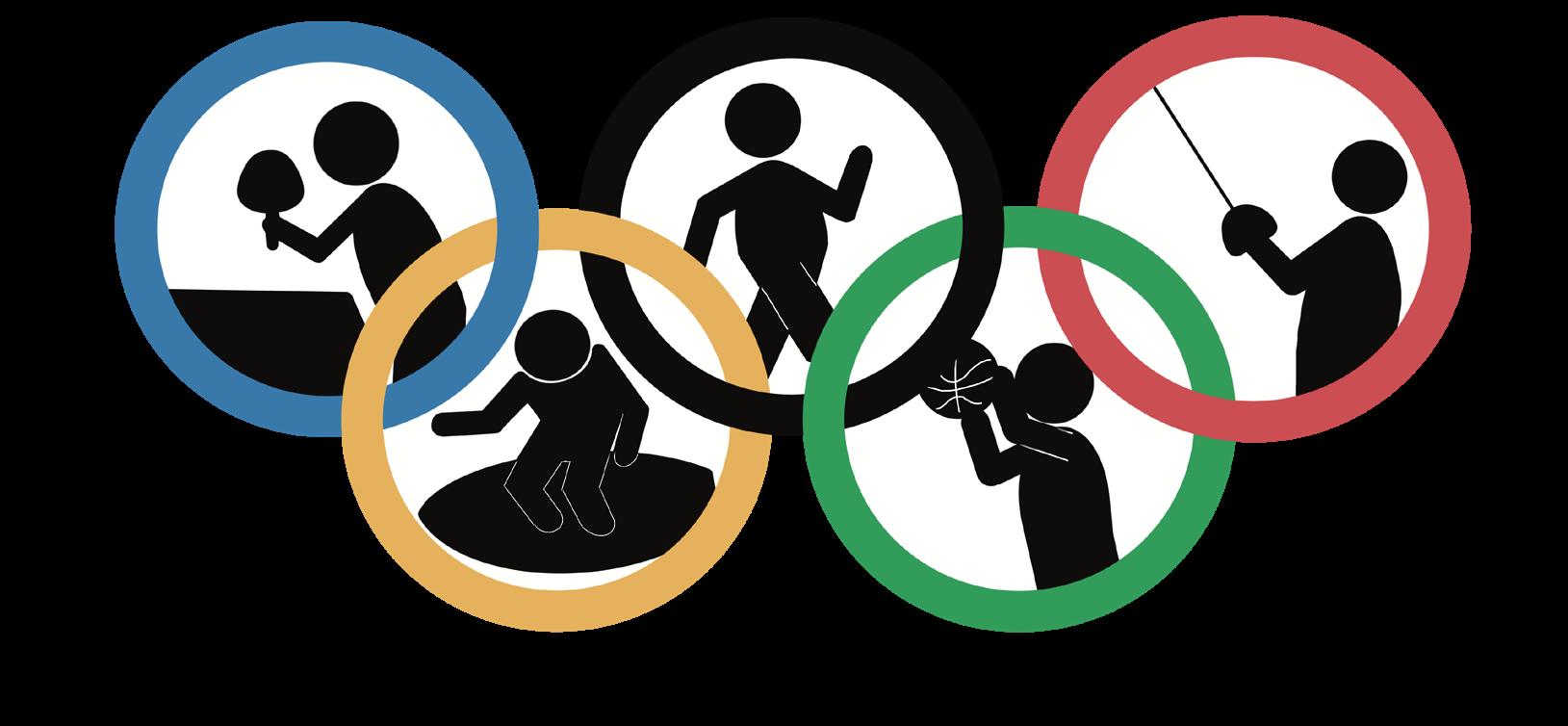
A recap of some of the most notable sports from this year's Olympic Games
By Charlie Bluestein
Introduced in the 1912 Olympics, the modern pentathlon, which is designed to test the skills of a soldier, encompasses fve unique sports: fencing, swimming, equestrian show jumping, pistol shooting and running.
Te multisport event, which was inspired by the experiences of the 19th-century soldier behind enemy lines, is split into two sections.
In the frst section, athletes begin with fencing duels, a 200-meter freestyle swim and an equestrian show jumping obstacle course.

While France is known for many things, impressive waves are not among them.
When organizing the games, the International Olympic Committee (IOC) made a remarkable choice regarding the location of one of the most unique and novel Olympic sports: surfng.
Instead of the event being held on mainland France, surfng was moved to the island province of Tahiti, 10,000 miles away from Paris.
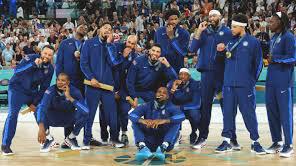
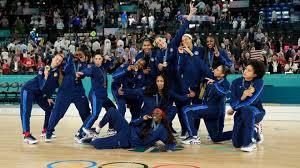
Te equestrian section is further complicated with an element of surprise – each athlete rides a horse assigned to them by a random draw just 20 minutes before the event.
In the second section, the athletes are ranked based on their cumulative scores from the frst section.
Teir rankings determine the position they start in for the fnal event, the laser run, which combines distance running and target pistol shooting. Athletes must run 3000 meters, stopping four times to shoot at targets with a laser pistol and score fve hits before continuing.
One of the most unique athletic events in the Olympics, race walking, has been a part of the Games since 1904. Unlike running, race walking requires athletes to maintain contact with the ground at all times, with one foot being in contact on each step.
Until recently, Olympic race walking featured two events: the 20k and the 50k, for both men and women. However, in a signifcant change for this year’s Paris Olympics, the
Te decision sparked controversy as Teahupo’o, the chosen beach town in Tahiti, is a small village, and required signifcant infrastructure overhauls to host the games.
Regardless, the Games came to Tahiti, with the IOC ofcials compromising the Tahitians and using a cruise ship as the Olympic “village” for the athletes instead of building extra facilities.
Te event itself consisted of timed heats, where the surfers competed to earn scores from judges. Each surfer's top two waves were
Making its frst Olympics appearance at the 1936 Berlin Games, basketball has become one of the most captivating and widely watched events in the Games.
Olympic basketball follows the same rules as professional leagues, with teams of fve players each battling on the court.
However, the international stage remains diferent compared to leagues like the National Basketball Association (NBA), as countries from around the world showcase their best talent.
Te United States in particular has a storied history in Olympic basketball, dominating the sport since its debut in 1936.
Te athletes who accumulated the most points in the frst section start with a time handicap, but the winner of the gold medal is ultimately determined by who crosses the fnish line frst.
Tis year, Ahmed El-Gendy of Egypt won gold in the men's Modern Pentathlon, with Japan's Taishu Sato taking silver and Italy's Giorgio Malan earning bronze. In the women's event, Hungary's Michelle Gulyás claimed gold, France's Élodie Clouvel won silver and South Korea's Seong Seung-min took bronze.
International Olympic Committee decided to scrap the 50k event, leaving the 20k as the sole race walking event in the competition.
Competitors race similarly to runners with one crucial diference: the addition of form judges. If a judge believes a walker is not following the rules—such as losing contact with the ground or bending their knee—they will issue a warning. If three diferent judges give warnings to the same athlete, the walker is disqualifed.
In the women's event, China's J.Y. Yang
scored based on difculty, innovation, power and speed, with the fnal score determining their placement.
France's Vauli Vaast claimed the gold in the men's event, with Australia's Jack Robinson earning silver and Brazil's Gabriel Medina taking bronze.
In the women's division, USA's Caroline Marks surfed her way to gold, followed by Brazil's Tatiana Weston-Webb with silver and France's Johanne Defay securing the bronze medal.
Te men's 5 on 5 team, often dubbed the "Dream Team," has consistently featured NBA stars and has won gold in 16 of the 19 Olympic tournaments.
Te women's team has been equally impressive, winning gold in their last eight Olympic appearances, dating back to 1992.
Te sport has evolved over the years, with the introduction of 3 on 3 basketball in the 2020 Tokyo Olympics adding a new dimension to the traditional format.
Tis shorter, faster version of the game has gained some popularity, giving a fresh take on a classic event.
Te United States men; however, have yet to perform well on this smaller court, not

took gold with a time of 1:25:24, followed by Spain's M. Pérez at 1:26:19 for silver and Australia's J. Montag at 1:26:25 for bronze. Ecuador's 2023 world silver medallist Brian Pintado upgraded to gold this year in Paris for the men’s event, fnishing in 1:18:55 during his third Olympic appearance. Brazil's Caio Bonfm secured silver with a time of 1:19:09, while Spain's Álvaro Martín claimed bronze at 1:19:11.

even making the podium in 2020 or 2024. Te women have done slightly better, catching bronze this year.
Even though the United States men’s team lacked success in 3 on 3, they continued their 5 on 5 legacy by winning the gold medal in Paris, reafrming its dominance in the sport. Victor Wembanyama and France secured the silver medal, while Nikola Jokic and Serbia took home the bronze, rounding out the podium with a display of skill and resilience. Meanwhile, for the women’s 5 on 5, the United States claimed the gold medal, remaining a powerhouse in the sport. France took home the silver, while Australia secured the bronze.
With a new

What unique aspects of yourself will you bring to this position?
"I started working as at a very young age. I was really involved in the Boys and Girls Club growing up, I was a CIT and a counselor, I worked in retail for a long time and those things have taught me how to work with a bunch of diferent people. You can take that mindset as a leader and you can apply it into many diferent settings."
What are you most nervous about in this position change?
“It might feel like there are some changes just because I’m going to be learning so much of the administrative piece of the job, but Mr. Rotatori set me up for a lot of success there. So as much as I’m nervous for certain aspects, I’m well-equipped , and I know I have the full support of the Wellness department, as well as other students and teachers.”
A graduate of South himself, Mr. Jordan-Quern, better known as PJ, brings experience and leadership as the new wellness department head as he takes over from the beloved Alan Rotatori who retired last June.
By Joey Giragos
Do you have any goals for yourself and or for the Wellness Department as a whole?
"My main goal one is just learn as much as possible in the frst few months. I want to refect on that experience and continue to help myself and my colleagues grow while providing a meaningful experience for the students. "
"One specifc goal is that we want to explore piloting like a capstone project, some type refective piece in each of your wellness courses, so you can refect on the tools that you gained from that course and how is that going to help you moving forward, almost like a four year journal, in a way."
What makes you excited about your new role as a department head?
“I'm mostly excited because of the momentum we've had two years after the pandemic, and I really feel like when we returned to our cohesive group. It really allowed for us to excel at a quicker pace. We didn't veer too far from the plan before the pandemic, and the pandemic actually ofered us an opportunity to change our branding as a department.”
New to South, Mr. Davies joins the Athletics team as an Assistant director
By Sarah Schwartz
What experience do you bring to the position?
"I have 24 years of coaching experience, 24 years of Asst. Director experience, and also working with the NCAA along the way, diferent committees. Although it was a diferent level, there was a lot of experience of working with high schools, especially in the recruiting process when I was coaching soccer all those years."
What will you bring from your 24 years as a soccer coach to your position at South?
"Hopefully, it brings just another level of professionalism to coaches who care a lot about the students, and they want to do well, but sometimes it's just the process of how they do things that needs a little refning, and I think through observation and conversation, I think I can bring that to coaches, and hopefully I can build that relationship with them too, so they can trust me enough to say, 'What do you think? 'and I can respond."
What does your role entail?
"Te number one thing is to support Patty, who needs that other person to bounce things of of and take care of the little details. Beyond that, it's a lot of oversight, game management, some of the scheduling things that just take a lot of time. I could take those of of her plate, so she can shine and be even better than she already. Ten I oversee the two middle school programs, so that they can kind of be a building process for the high school programs."
Did you grow up playing sports?
How has your relationship with Alan Rotatori, the former department head, prepared you for this position?
"We had a lot of similarities, but we also held diferent perspectives for diferent aspects of life and education. We complimented each other well.
We shared an ofce, so we were able to have some challenging and fullflling personal conversations and professional conversations where it's like, ‘all right, like I hear you, but I would do it this way.’
His encouragement has just always been top notch for me, from when I frst started in the building as an athletic trainer and wellness teacher.
I've always taken notes with all the coaches I've worked with on how they manage diverse group needs where the one thing bringing them together is the sport. Mr. Rotatori was incredibly good at that.
I'm really hopeful that I can apply that strategy to the Wellness Department, centering around our commonality of providing the best educational service possible for our students."

What excites you the most about South?
"I played soccer, baseball and basketball, and also kicked feld goals on the football team in high school. In college, I played soccer for the four years, and I also played basketball my freshman year. In 1993, I was on the preseason professional roster of the Cleveland Crunch in the PSL indoor soccer league. Tat was a short stint, but that was my run of fame for a short time."
" A lot of high schools just kind of do their thing and win games, but that's all they care about. I'm excited about the fact that this school cares so much about the academic side, because I think it's just a great building block, and it could take a lot of things from athletics and the classroom, and they kind of marry each other."
"What I like to see is kids who didn't think they really had a shot t to play in college, and you give them that motivation the tools to say, yes, you can do it. And that's something I am excited about doing here."

Happy First Day! Welcome or welcome back to South <3
Here's to a year like this puzzle: challenging, fun and filled with friends!
1) Presidential candidate and femininomenon
2) Guard for the Phoenix Suns or New Jersey Senator
4) City in Spain where locals sprayed tourists with water guns in protest

6) Senior class president
8) What do you call a cat that’s eaten a lemon?
10) He’s colorblind. But it’s fein.
11) Father-son duo that sings about double chunk chocolate cookies.


14) Centerfold editor, tennis player, junior 19) Café on Needham St. Favorite send-up location. Risha’s grave.
2) Caboose, rear, gyatt
3) Glover’s childish pseudonym
5) Pool near Albemarle feld that recently reopened after renovations
7) Bratty artist

9) Sour cucumber
12) Party of all candidates in the 12th Middlesex state representative race
13) Cowboy apparatus
15) Australian breakdancer who became a meme during the Paris Olympics
16) What do you deserve that is also a bagel?
17) Wonderwall band that announced a reunion tour after a 15 year rift
18) Presidential candidate and felon
20) Actress who garnered controversy while promoting her Colleen Hoover movie

Matteo Lee



Welcome back to school!
Te chances that you are reading this is very low because only 10 percent of South students pick up the paper and only 1 percent actually read it!
Kamala, Butt, Childish, Barcelona, Gath, Hoitash, CharliXCX, Sourpuss, Pickle, Feinberg, CostcoGuys, Democrats, Lasso, Ransbotham, Raygun, Everything, Oasis, Trump, Pressed, Lively

cafeteria because it’s always quiet. Te library gets way too loud. If you have any other block free use this opportunity to walk to Starbucks; the calories will help you stay dialed for your classes.



I would just like to start of by saying just how grateful I am to have my very own column once more.
Senior Staf was skeptical, but after much pleading and a small sum of $5000 they have decided to reboot my column for another great year at South.
On that note, we need to have a serious discussion, because that “great year at South” could quickly turn into a “bad year at South” or a “transfer from South” if you don’t lock in. Te summer’s over. Te sooner you face this harsh reality the sooner you will succeed.
You don’t want to be sitting in quarter 4 thinking of ways to clutch an academic comeback. It’s easy to say “just lock in” but let me give you a couple tips for how to actually do it.
1) Take advantage of your free blocks. If you have D free the best place to study is the
Aquarius (Jan. 20-Feb. 18): Ideas are popping up like crazy! Now, if only you could remember where you put that notebook...
Pisces (Feb. 19-March 20):
You’re daydreaming your way through today. Just make sure your dreams don’t involve forgetting to study for that big test.
Aries (March 21-April 19):
You’ve got your goals set for the year, and you’re already stressed about them. Don’t worry, summer will be back before you
Taurus (April 20-May 20):
You’ll fnally get that reward you’ve been waiting for. It’s probably just a cookie, but hey, a win’s a win!
2) Don’t cram studying into one day. Te simple solution is to actually just not study at all.
3) Do be afraid to reach out for extra help. If you don’t understand a topic covered in class don’t worry about it. Your brain can’t grow without struggling. Te whole point is that you fgure it out on your own. Tis is how we learn.
Libra (Sept. 23- Oct. 22): Balance is everything. Try not to tip over while holding that giant cofee and the 12 things you insisted on carrying at once.
Cancer (June 21- July 22): You’ll make a new friend today. It might be the vending machine, but hey, it’s a solid relationship — and better than a rat!
Gemini (May 21- June 20): Your mind’s all over the place today. Try to focus, or at least make sure you don’t lose your keys... again. Leo (July 23- Aug. 22): Today’s the day to be extra nurturing. So if your plants are looking sad, maybe try talking to them—just not in public.
Virgo (Aug. 23- Sept. 22): You’ll have all your supplies neatly organized, but still manage to lose your favorite pen within the frst week.
Scorpio (Oct. 23- Nov. 21):
You’re in deep today—deep thoughts, deep emotions, or maybe just a really deep rabbit hole on the internet.
Sagittarius (Nov. 22- Dec. 21): Adventure is calling! Just make sure your GPS isn’t leading you straight to a dead end. Again.
Capricorn (Dec. 22- Jan. 19): Your hard work is fnally paying of Tat extra fve minutes of sleep this morning? Totally earned.